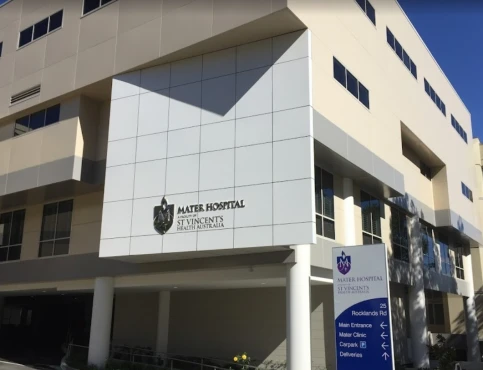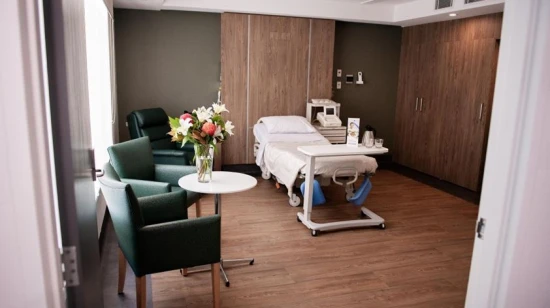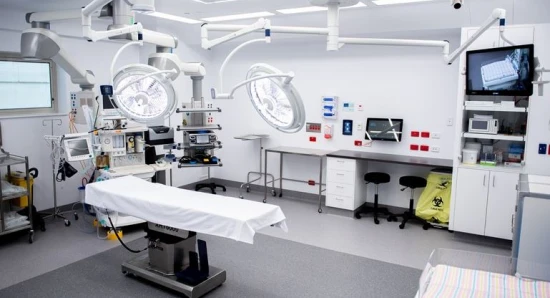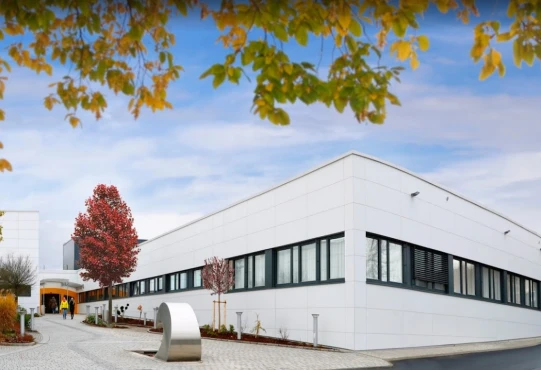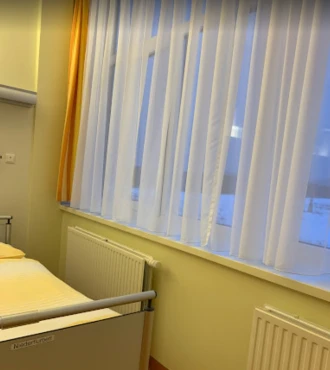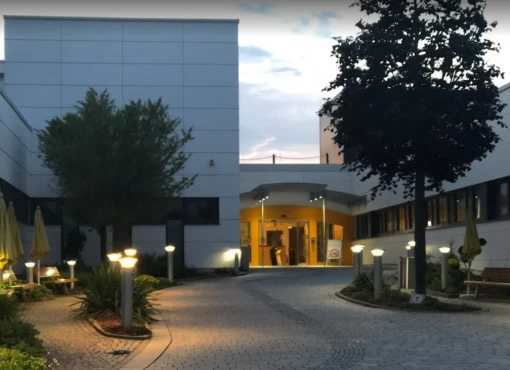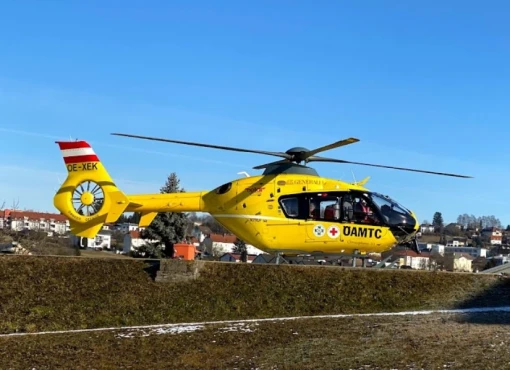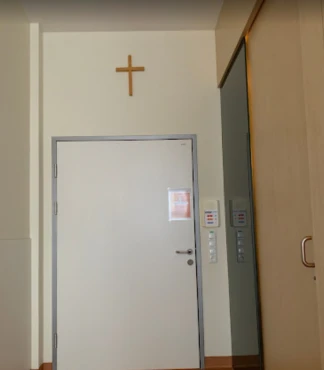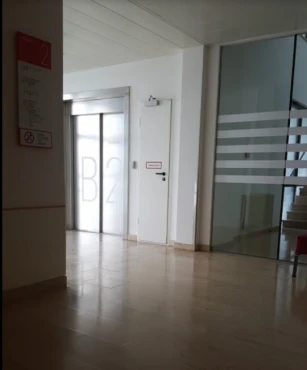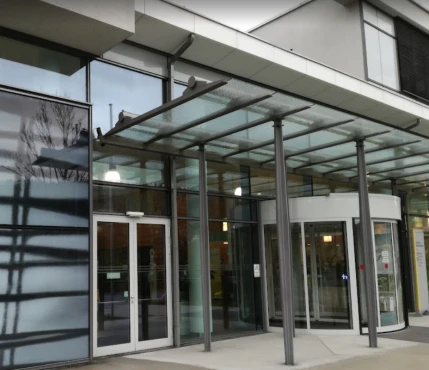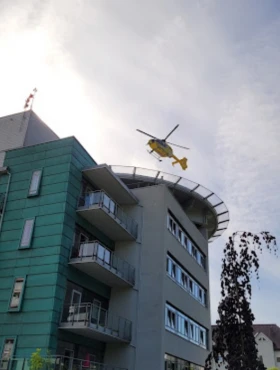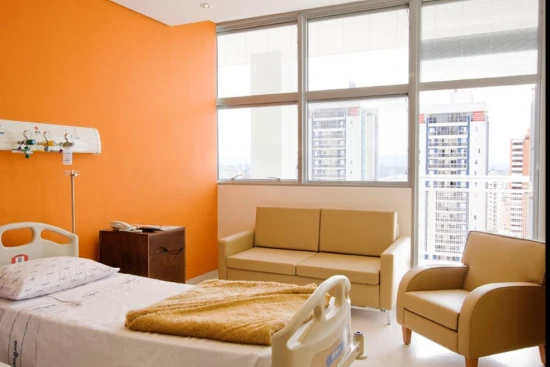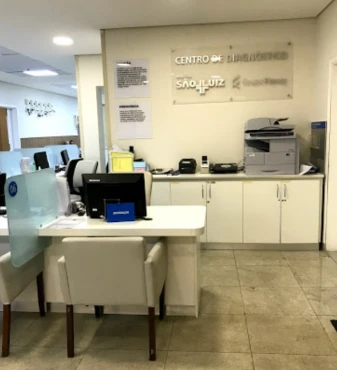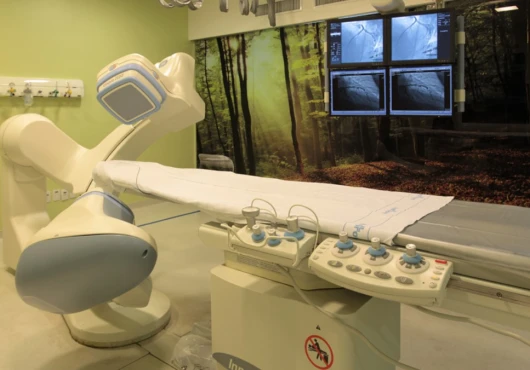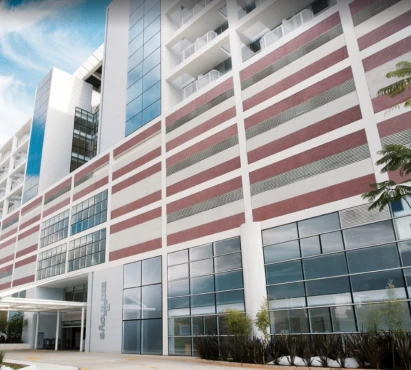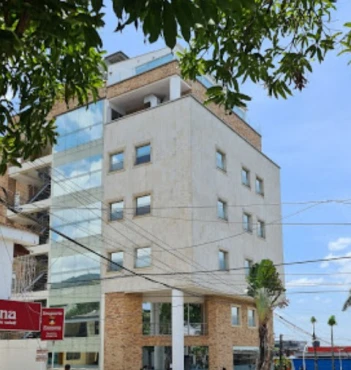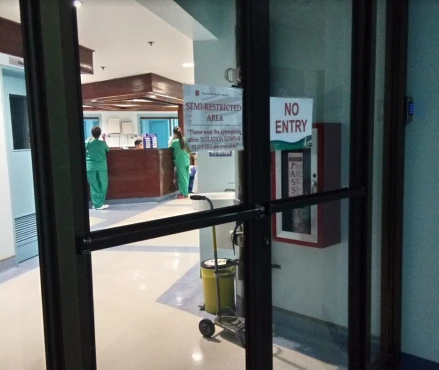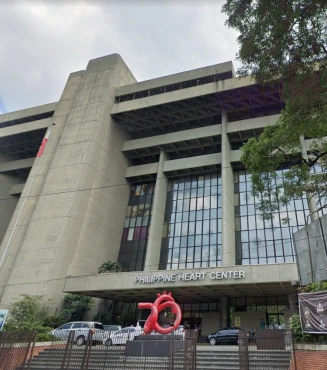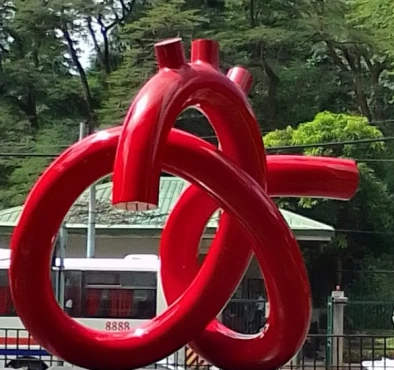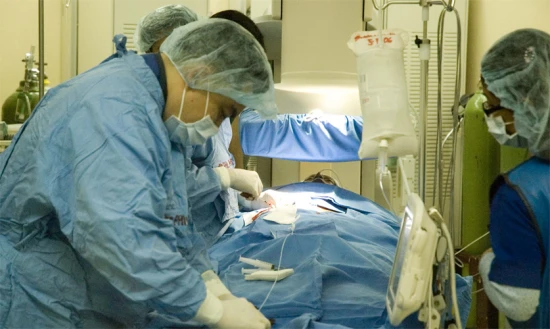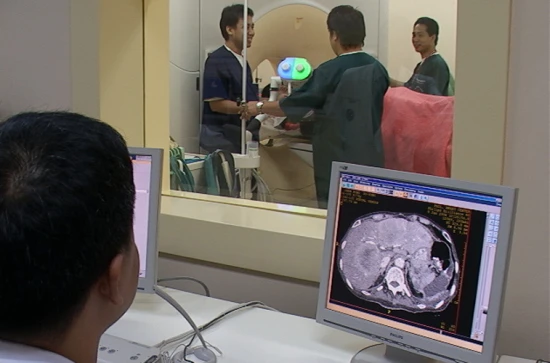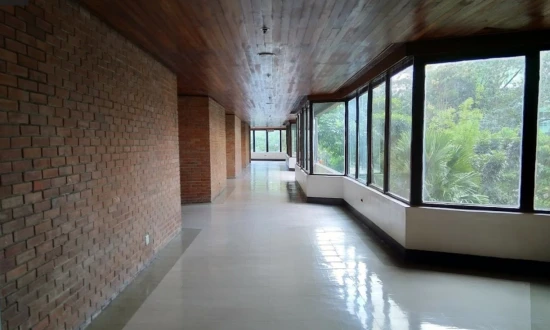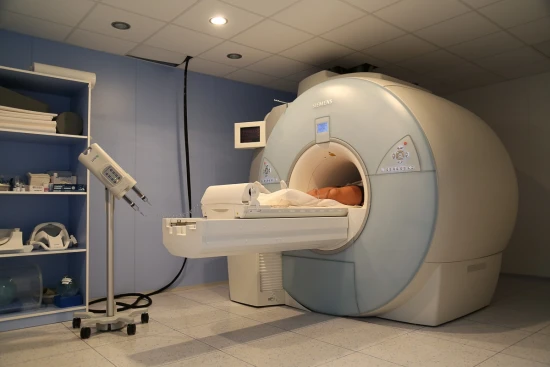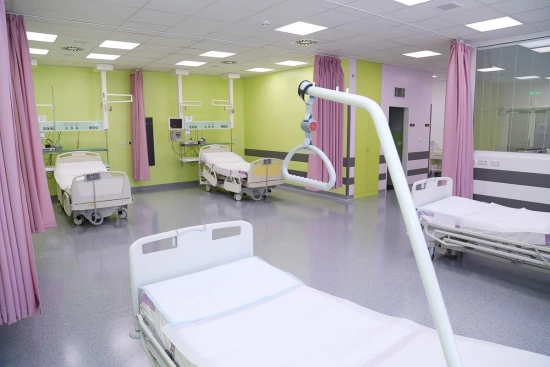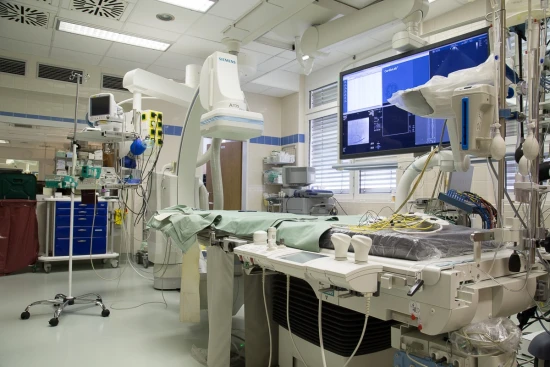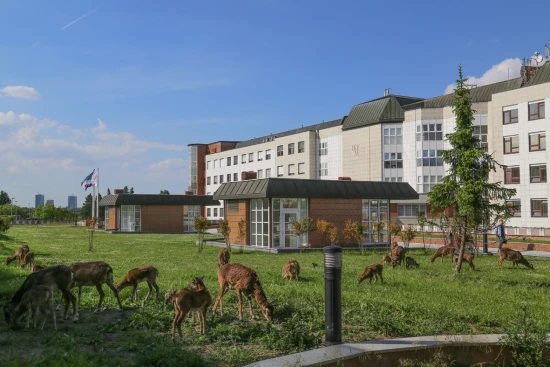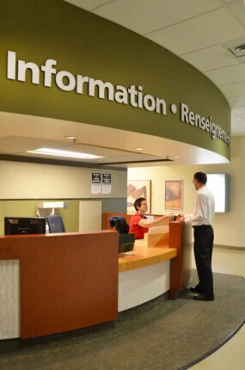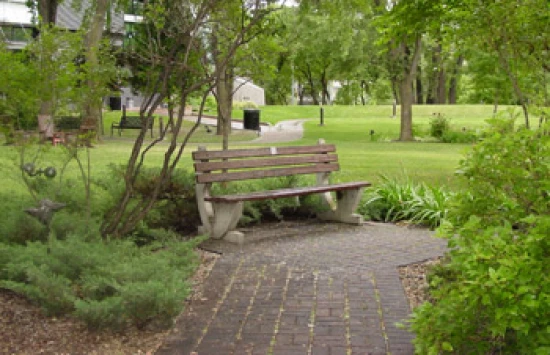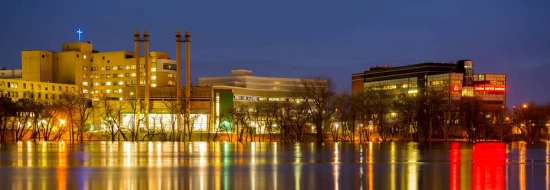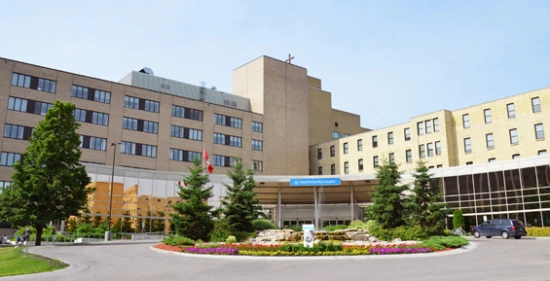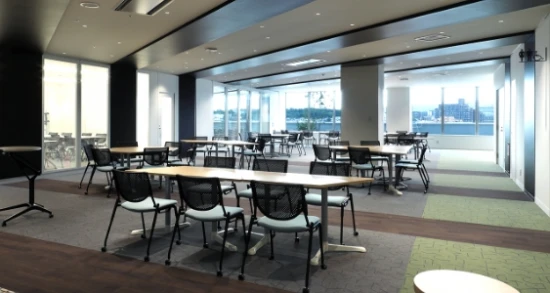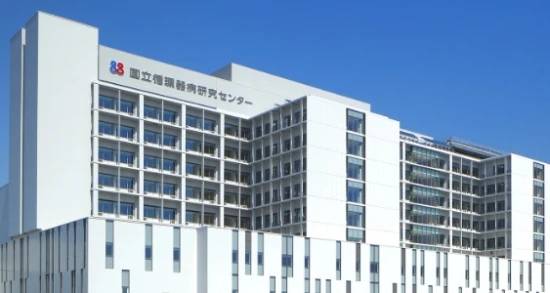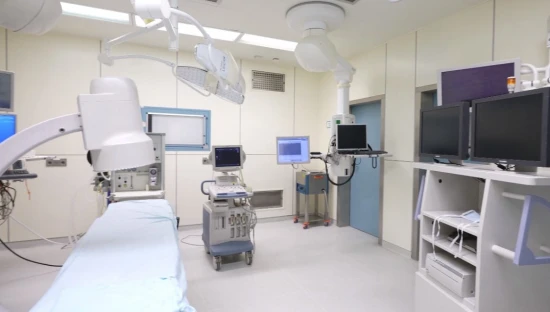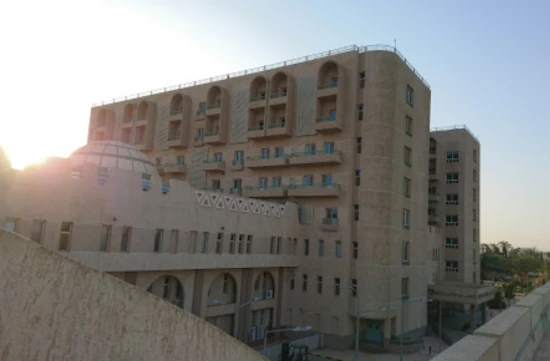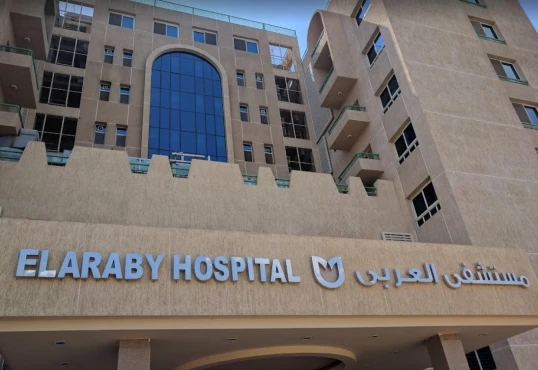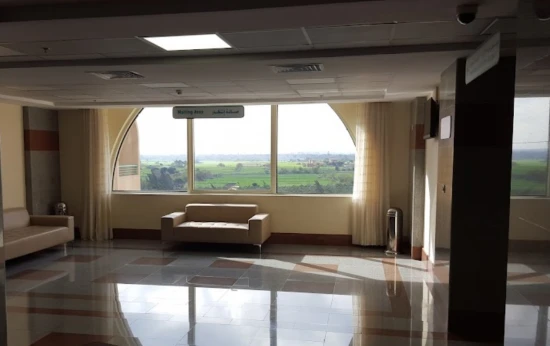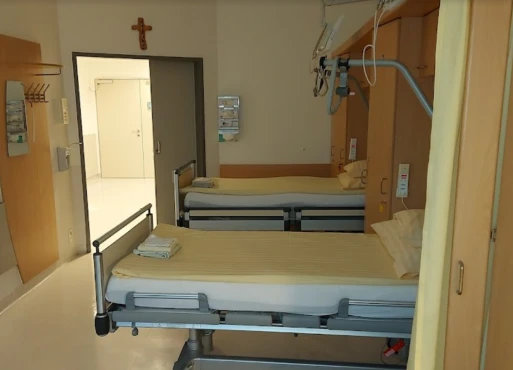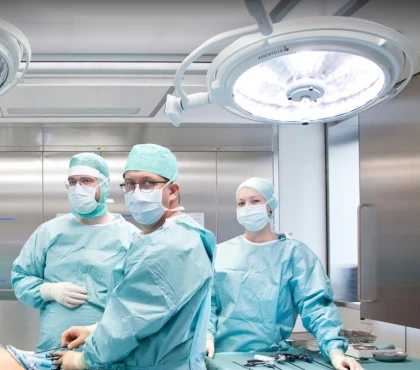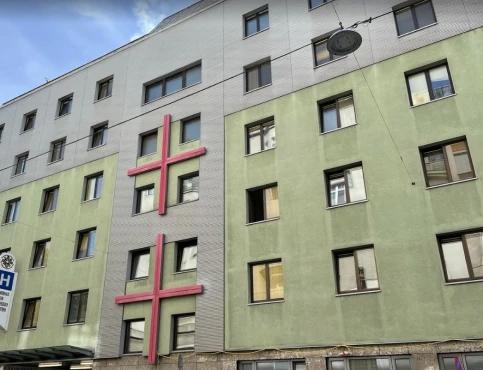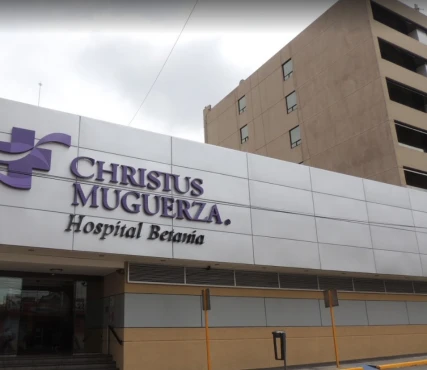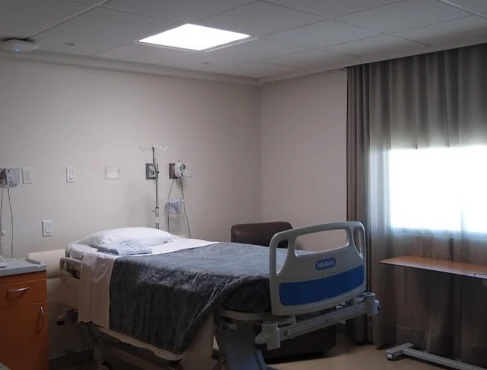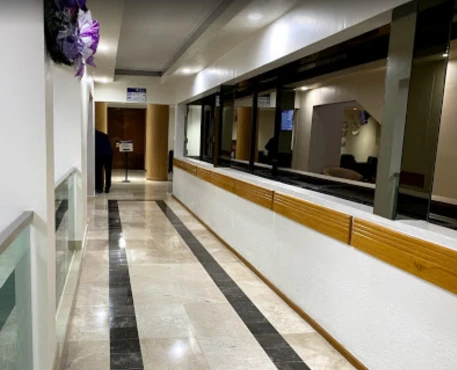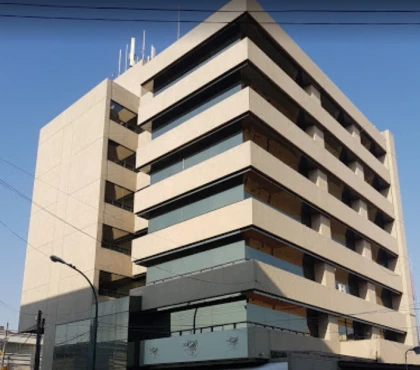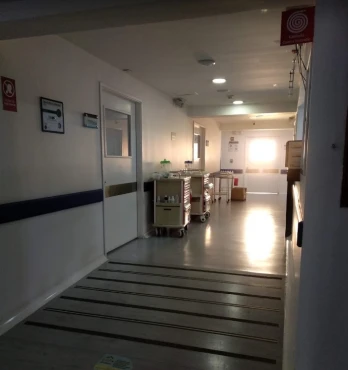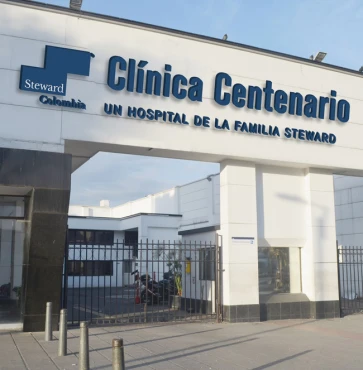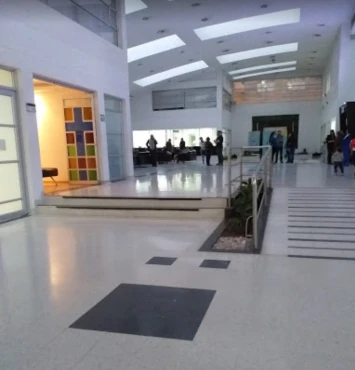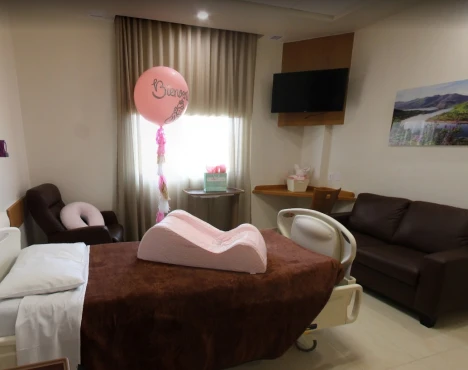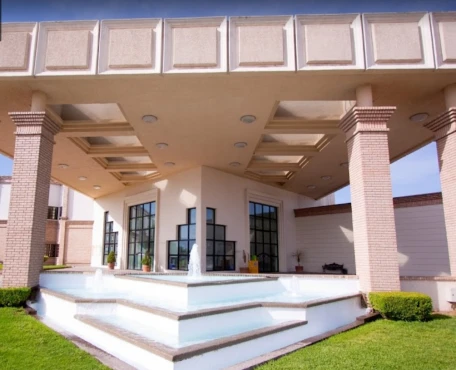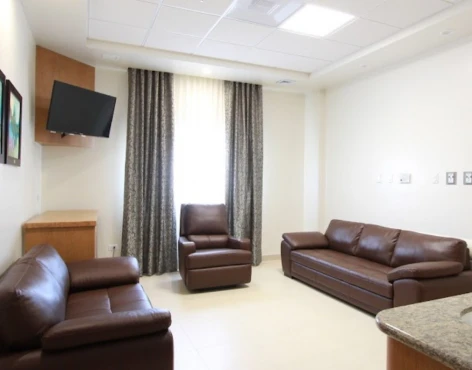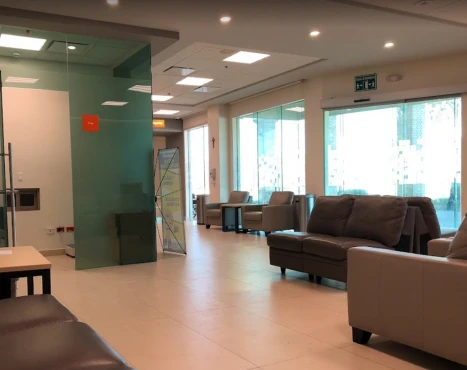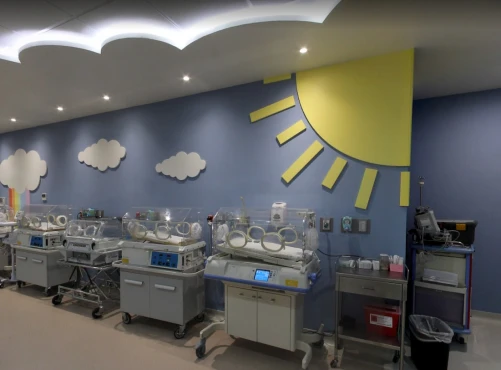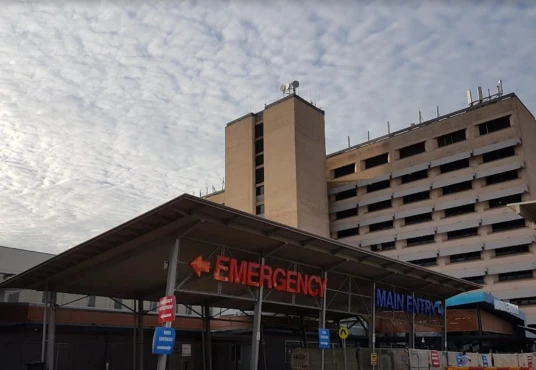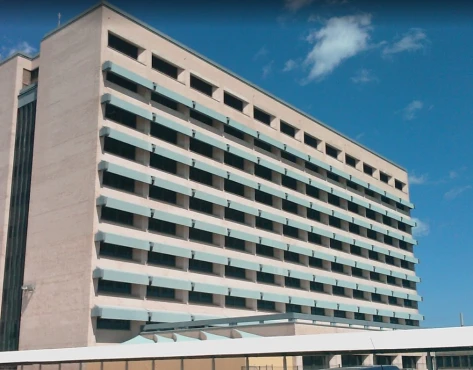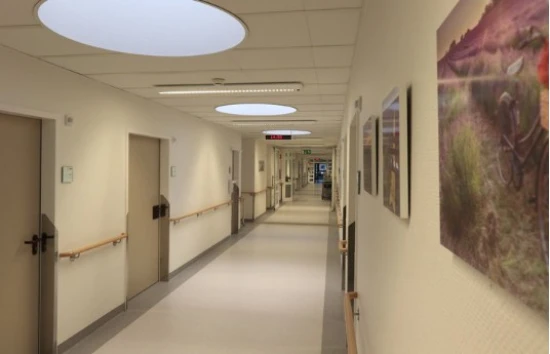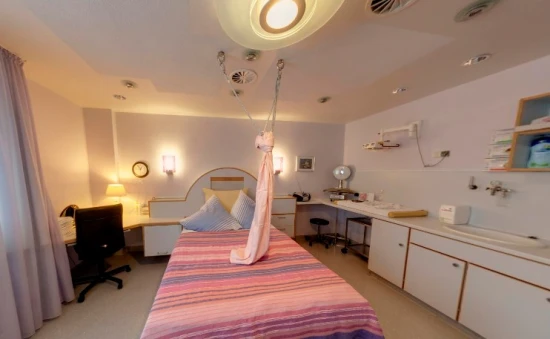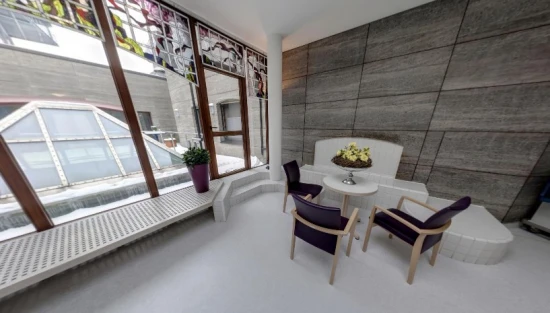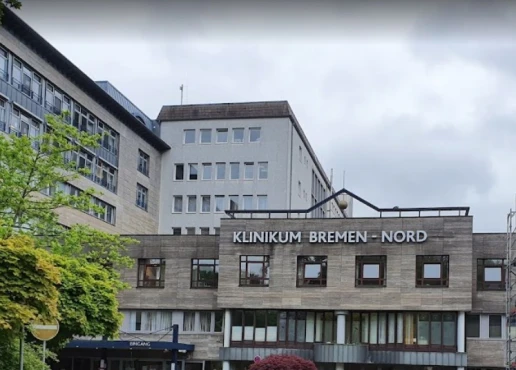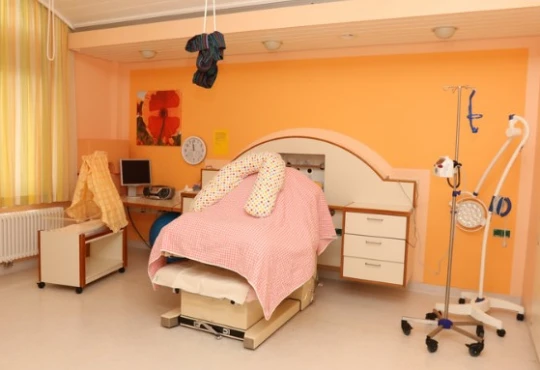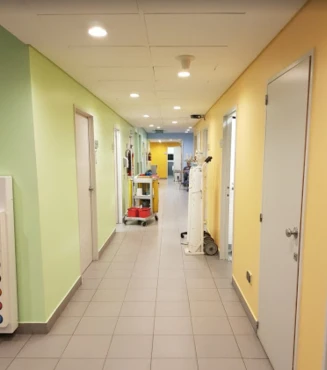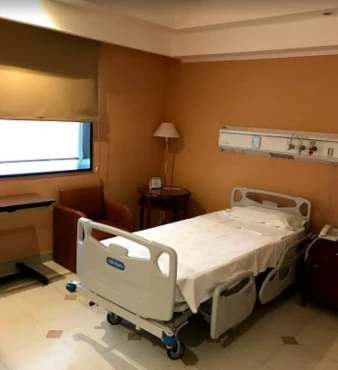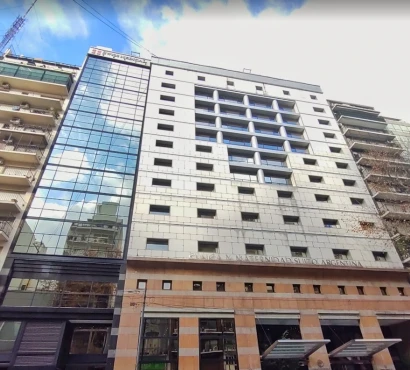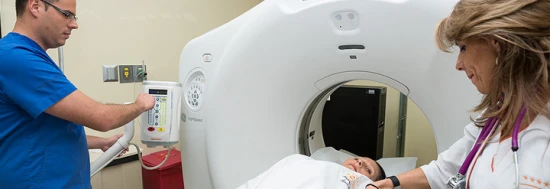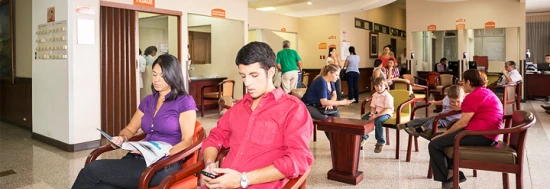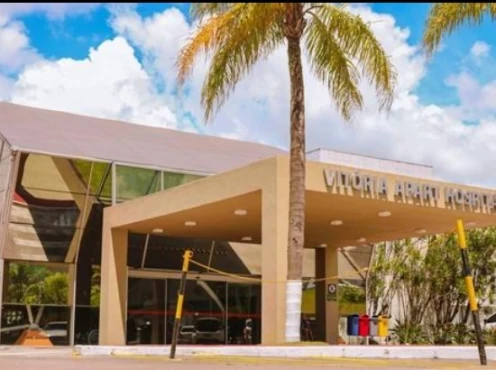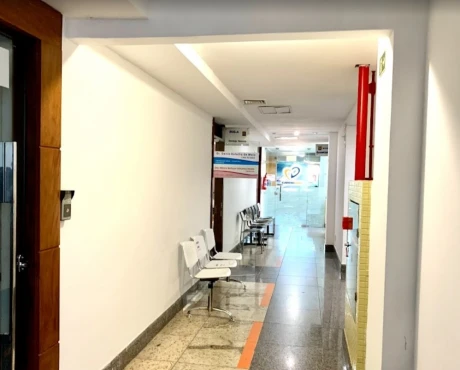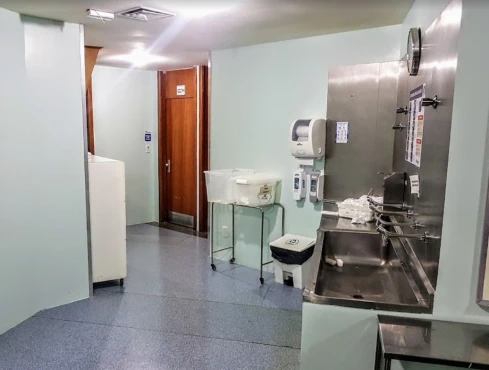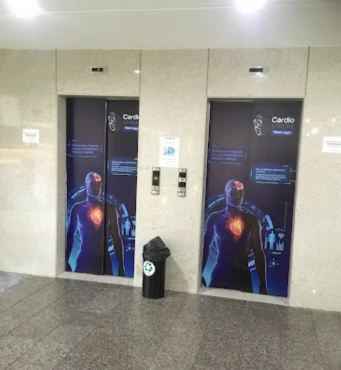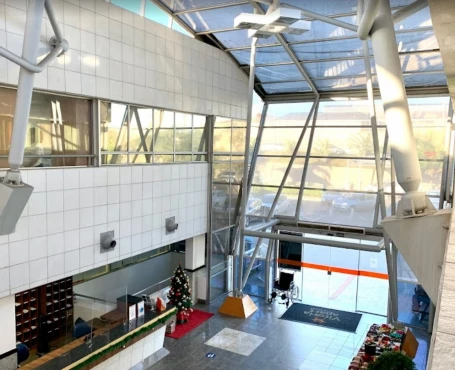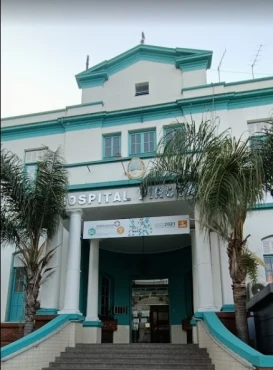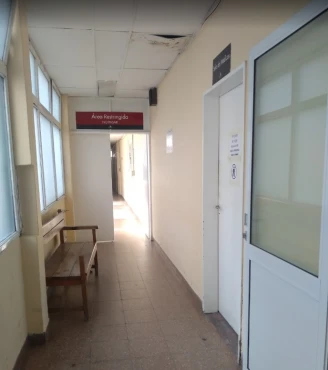Myocardial infarction (MI) treatment in 771 Cardiac surgery clinics worldwide
Top
Clinics
Ratings
Diseases
Quick navigation
771 clinics specializing in Cardiac surgery providing treatment of Myocardial infarction (MI) Myocardial infarction (MI), commonly known as a heart attack, occurs when blood flow to a part of the heart is blocked, leading to the death of heart muscle tissue. It is a medical emergency and requires immediate treatment to restore blood flow and prevent further damage. disease worldwide.
5
from Drazcula
November 11, 2023
Had our first baby here last week, what an amazing hospital. The maternity ward was out standing, fantastic nurses and midwives who go above and beyond despite their patient load (special shout out to Maree, Anne Marie and Yvette!)
For a hospital, the food was quite good - you order on demand and meals are made fresh. Overall, I had a great experience especially as a first time mother. Thank you again.
5
from shi ying yong
September 04, 2023
I was admitted for an elective surgery and could not recommend my stay at the Mater enough! What really shines at Mater is the thoughtfulness and care that the nurses and staff provided to me throughout my stay. I would like to thank Tomika, Heather, Kenny and Alyssia for their incredible assistance and the care that they provided to me. The nurses really take the time to explain what they are doing and are attentive and helpful during their shifts (even during late nights or early mornings). The little gestures that they do just to get you to be a little more comfortable really leave a mark on you. Additionally the room service offered at the Mater provides a wider selection of meal options to choose from compared to other hospitals and the ability to order a variety of meals or snacks during the day when needed. The kitchen staff are accommodating and can assist in scheduling your meals as well. Highly recommend the Mater!
5
from Vinicius Zampiroli Cerqueira
July 14, 2023
I had an absolutely incredible experience that I will be forever grateful for. The staff members were not only extremely kind, but also incredibly knowledgeable in their field. I want to give a special thanks to the midwives Michelle and Hayley, who were not only amazing people, but also true professionals in every sense of the word.
On a side note, the food provided throughout our stay was exceptional, making every day a delightful culinary experience, so thank so much for the people that we couldn’t see cooking for us, but we could definitely taste their care.
Prices for popular procedures:
-
Redo heart surgery
≈ $21,385
-
Off-pump coronary artery bypass surgery
≈ $43,751
-
Cardiac catheterization
≈ $5,466
-
Intraaortic balloon pump (IABP) procedure
≈ $7,091
-
Temporary pacemaker implantation
≈ $2,233
-
Percutaneous coronary intervention (PCI) with angioplasty
≈ $13,180
-
Percutaneous coronary intervention (PCI) with stent insertion
$10,095
-
Dual chamber pacemaker insertion
≈ $20,441
-
Implantable cardioverter-defibrillator implantation (ICD)
$15,535
4.1
5 reviews
5
from Drazcula
November 11, 2023
Had our first baby here last week, what an amazing hospital. The maternity ward was out standing, fantastic nurses and midwives who go above and beyond despite their patient load (special shout out to Maree, Anne Marie and Yvette!)
For a hospital, the food was quite good - you order on demand and meals are made fresh. Overall, I had a great experience especially as a first time mother. Thank you again.
5
from shi ying yong
September 04, 2023
I was admitted for an elective surgery and could not recommend my stay at the Mater enough! What really shines at Mater is the thoughtfulness and care that the nurses and staff provided to me throughout my stay. I would like to thank Tomika, Heather, Kenny and Alyssia for their incredible assistance and the care that they provided to me. The nurses really take the time to explain what they are doing and are attentive and helpful during their shifts (even during late nights or early mornings). The little gestures that they do just to get you to be a little more comfortable really leave a mark on you. Additionally the room service offered at the Mater provides a wider selection of meal options to choose from compared to other hospitals and the ability to order a variety of meals or snacks during the day when needed. The kitchen staff are accommodating and can assist in scheduling your meals as well. Highly recommend the Mater!
5
from Vinicius Zampiroli Cerqueira
July 14, 2023
I had an absolutely incredible experience that I will be forever grateful for. The staff members were not only extremely kind, but also incredibly knowledgeable in their field. I want to give a special thanks to the midwives Michelle and Hayley, who were not only amazing people, but also true professionals in every sense of the word.
On a side note, the food provided throughout our stay was exceptional, making every day a delightful culinary experience, so thank so much for the people that we couldn’t see cooking for us, but we could definitely taste their care.
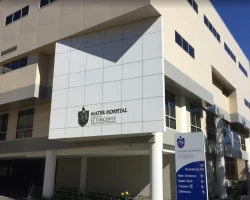
Sydney, Australia
Specializations: Cardiac surgery, Vascular surgery, Orthopedic surgery, Oncology
Languages: Arabic, Croatian, Italian, Serbian, Somali, Turkish, Vietnamese, Greek, Modern, Spanish; Castilian, Chinese
The Mater Hospital is a leading private hospital renowned for its quality care and compassion. We take a holistic approach to healthcare and acknowledge the
read more
5
from Barbara Munzinger
December 04, 2023
I arrived on time for my MRI appointment. Staff very friendly and competent. After that I had to reschedule an operation date in the gynecology department. The ward sister personally took me to the outpatient clinic, where the head of the department immediately addressed my concerns
and kindly and even arranged the anesthesia appointment for me. There is so much complaining about outpatient clinics and hospitals, there needs to be some praise.
Thank you very much and kind regards! Barbara Munzinger
5
from Charl Chapman
November 13, 2023
Very modern, clean and friendly. The staff were all just great! My daughter, 11 years old, has an injury to her foot and was thoroughly examined, including an x-ray - all in about 45 minutes! A huge thank you from all of us!
5
from Stefan Baumann-Thaler
August 25, 2023
A big thank you to the entire staff of the Rohrbach Hospital, especially to the surgical team. As soon as I was accepted, I felt understood and I was told that I would be treated with warmth. The inpatient admission was overwhelming. Everyone was friendly, in a good mood, always concerned about their patients. In my opinion, our Austrian health system is currently sliding into the abyss, but the KH Rohrbach has proven to be well organized and stable. Thanks again for the great care.
Prices for popular procedures:
-
Cardiac catheterization
≈ $4,274
-
Intraaortic balloon pump (IABP) procedure
≈ $3,704
-
Temporary pacemaker implantation
≈ $1,503
-
Percutaneous coronary intervention (PCI) with angioplasty
≈ $11,718
-
Percutaneous coronary intervention (PCI) with stent insertion
≈ $17,430
-
Dual chamber pacemaker insertion
≈ $13,775
-
Permanent pacemaker implantation
≈ $17,052
-
Percutaneous ASD closure
≈ $20,215
-
Percutaneous closure of ventricular septal defect (VSD)
≈ $14,378
4.1
5 reviews
5
from Barbara Munzinger
December 04, 2023
I arrived on time for my MRI appointment. Staff very friendly and competent. After that I had to reschedule an operation date in the gynecology department. The ward sister personally took me to the outpatient clinic, where the head of the department immediately addressed my concerns
and kindly and even arranged the anesthesia appointment for me. There is so much complaining about outpatient clinics and hospitals, there needs to be some praise.
Thank you very much and kind regards! Barbara Munzinger
5
from Charl Chapman
November 13, 2023
Very modern, clean and friendly. The staff were all just great! My daughter, 11 years old, has an injury to her foot and was thoroughly examined, including an x-ray - all in about 45 minutes! A huge thank you from all of us!
5
from Stefan Baumann-Thaler
August 25, 2023
A big thank you to the entire staff of the Rohrbach Hospital, especially to the surgical team. As soon as I was accepted, I felt understood and I was told that I would be treated with warmth. The inpatient admission was overwhelming. Everyone was friendly, in a good mood, always concerned about their patients. In my opinion, our Austrian health system is currently sliding into the abyss, but the KH Rohrbach has proven to be well organized and stable. Thanks again for the great care.

Rohrbach-Berg, Austria
Specializations: Cardiac surgery, Vascular surgery, Thoracic surgery, Orthopedic surgery, Oncology
Thank you very much for your visit on our Homepage. You can get to know our hospital better here. The Rohrbach Clinic is the northernmost
read more
5
from Gerhard Tober
November 02, 2023
Nobody likes to be sick, but when they are, they wish they had a hospital like this. Top staff, fully motivated and friendly. It's the same with doctors. These people more than deserve my rare five stars. Only the food could be better. Otherwise, hats off and respect.
5
from Annemarie Dohr
October 10, 2023
A meniscus injury took me to Waidhofen/Ybbs.
I would like to thank EVERYONE for the good and friendly support.
I particularly feel the need to express high praise.
Thanks Dr. Schitz is no longer in pain!!
5
from Annette Haider
August 17, 2023
Hello, I got a new hip.
Been to several hospitals but this one was great. The sisters are always ready, very friendly and helpful. You never heard an unfriendly word, no matter how many times you rang the bell.
The doctors calmly answered all of your questions.
I would like to thank everyone for the nice care
Kind regards, Annette
Prices for popular procedures:
-
Cardiac catheterization
≈ $4,274
-
Intraaortic balloon pump (IABP) procedure
≈ $3,704
-
Temporary pacemaker implantation
≈ $1,503
-
Percutaneous coronary intervention (PCI) with angioplasty
≈ $11,718
-
Percutaneous coronary intervention (PCI) with stent insertion
≈ $17,430
-
Dual chamber pacemaker insertion
≈ $13,775
-
Permanent pacemaker implantation
≈ $17,052
-
Percutaneous ASD closure
≈ $20,215
-
Percutaneous closure of ventricular septal defect (VSD)
≈ $14,378
4.5
5 reviews
5
from Gerhard Tober
November 02, 2023
Nobody likes to be sick, but when they are, they wish they had a hospital like this. Top staff, fully motivated and friendly. It's the same with doctors. These people more than deserve my rare five stars. Only the food could be better. Otherwise, hats off and respect.
5
from Annemarie Dohr
October 10, 2023
A meniscus injury took me to Waidhofen/Ybbs.
I would like to thank EVERYONE for the good and friendly support.
I particularly feel the need to express high praise.
Thanks Dr. Schitz is no longer in pain!!
5
from Annette Haider
August 17, 2023
Hello, I got a new hip.
Been to several hospitals but this one was great. The sisters are always ready, very friendly and helpful. You never heard an unfriendly word, no matter how many times you rang the bell.
The doctors calmly answered all of your questions.
I would like to thank everyone for the nice care
Kind regards, Annette
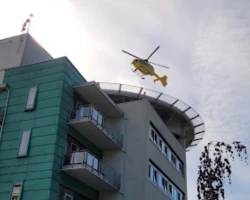
Waidhofen an der Ybbs, Austria
Specializations: Cardiac surgery, Vascular surgery, Orthopedic surgery, Oncology
Every hospital stay represents an unfamiliar situation and is associated with fear and worry. That is why human attention is an indispensable factor in the
read more
1
from Morgana Ribeiro
November 30, 2023
Terrible service, absurd delay at reception of more than 40 minutes. Unprepared employees with no information on service protocols. Both for scheduling by phone and in person. I scheduled an MRI and confirmed the information before making the call and when I arrived to be seen on the second attempt (as the first time I was unable to be seen because the exam was 2 hours late) the attendant gave me completely different information, stating that I would need to change the order on behalf of the council, and I confirmed it with the telephone attendant twice regarding the council. Anyway, on top of that, I agreed to take the exam because I was urgently required, but it was 1h30 late, which ended up being a little longer. The hospital used to be excellent, but it has lost its quality, I don't recommend it.
1
from Daniela Catani
October 28, 2023
Terrible in terms of hospitalization... I arrived at the hospital with my daughter with blood in her stool... I was well looked after in the ER and, after carrying out the tests, the doctor informed me that hospitalization would be necessary. We were directed to the infirmary and here I have been ever since. I was admitted to the hospital on 11/27/23 at 7:58 pm.
I signed the authorization for hospitalization on 11/28/23 at 01:48 and now it is 15:50 on 11/28/23 and we are still here in the infirmary...
They should warn you before admitting you about all this! A lack of respect. My daughter has been on a stretcher for 14 hours and I was sitting in a chair for hours and after a lot of complaining, they put an armchair...
1
from mauricio p
June 01, 2023
DON’T HAVE CHILDREN IN THIS PLACE😡😡
Worst experience possible, we signed a maternity plan at this unit, everything was wonderful when presented, I thought it would be a good place for my wife and daughter.
My wife went into labor so we went to the hospital. Arriving at the location, my wife went to the service.
There was no room available, so we did the whole process by pushing our bags around the hospital.
I asked the receptionist who informed me that this is quite common at the place, as it happens every day and so I asked someone from management (both rude) and said that I would only have a room around 9 am and at that time it was around midnight. night and a half.
Of course it didn't happen, he only got to the room around 2:30 pm.
In short, my wife had our daughter, I continued through the hospital pushing suitcases, all of this was nothing close to what my wife went through.
THEY SIMPLY LEFT MY WIFE FOR 5 HOURS IN THE RECOVERY ROOM ALONE WITH THE BABY AFTER A RACHI BECAUSE THERE WAS NO ROOM
I CAN'T GET OUT OF MY HEAD HER CRYING TELLING ME
Several women passed through the recovery room and went to their rooms, and they remained there with no one to help.
We arrived at our room after much insistence and were poorly attended to by the staff while my wife went through what she went through.
INHUMANE HOSPITAL WITH TERRIBLE ADMINISTRATIVE STAFF
NOTE: Nurse GABI was incredible in providing care at all times
In other words, look for another place for such an incredible moment in life.
Prices for popular procedures:
-
Redo heart surgery
≈ $5,335
-
Off-pump coronary artery bypass surgery
≈ $9,098
-
Cardiac catheterization
≈ $913
-
Intraaortic balloon pump (IABP) procedure
≈ $1,278
-
Temporary pacemaker implantation
≈ $485
-
Percutaneous coronary intervention (PCI) with angioplasty
≈ $3,830
-
Percutaneous coronary intervention (PCI) with stent insertion
≈ $3,461
-
Dual chamber pacemaker insertion
≈ $4,209
-
Coronary artery bypass graft (CABG)
≈ $7,909
3.6
5 reviews
1
from Morgana Ribeiro
November 30, 2023
Terrible service, absurd delay at reception of more than 40 minutes. Unprepared employees with no information on service protocols. Both for scheduling by phone and in person. I scheduled an MRI and confirmed the information before making the call and when I arrived to be seen on the second attempt (as the first time I was unable to be seen because the exam was 2 hours late) the attendant gave me completely different information, stating that I would need to change the order on behalf of the council, and I confirmed it with the telephone attendant twice regarding the council. Anyway, on top of that, I agreed to take the exam because I was urgently required, but it was 1h30 late, which ended up being a little longer. The hospital used to be excellent, but it has lost its quality, I don't recommend it.
1
from Daniela Catani
October 28, 2023
Terrible in terms of hospitalization... I arrived at the hospital with my daughter with blood in her stool... I was well looked after in the ER and, after carrying out the tests, the doctor informed me that hospitalization would be necessary. We were directed to the infirmary and here I have been ever since. I was admitted to the hospital on 11/27/23 at 7:58 pm.
I signed the authorization for hospitalization on 11/28/23 at 01:48 and now it is 15:50 on 11/28/23 and we are still here in the infirmary...
They should warn you before admitting you about all this! A lack of respect. My daughter has been on a stretcher for 14 hours and I was sitting in a chair for hours and after a lot of complaining, they put an armchair...
1
from mauricio p
June 01, 2023
DON’T HAVE CHILDREN IN THIS PLACE😡😡
Worst experience possible, we signed a maternity plan at this unit, everything was wonderful when presented, I thought it would be a good place for my wife and daughter.
My wife went into labor so we went to the hospital. Arriving at the location, my wife went to the service.
There was no room available, so we did the whole process by pushing our bags around the hospital.
I asked the receptionist who informed me that this is quite common at the place, as it happens every day and so I asked someone from management (both rude) and said that I would only have a room around 9 am and at that time it was around midnight. night and a half.
Of course it didn't happen, he only got to the room around 2:30 pm.
In short, my wife had our daughter, I continued through the hospital pushing suitcases, all of this was nothing close to what my wife went through.
THEY SIMPLY LEFT MY WIFE FOR 5 HOURS IN THE RECOVERY ROOM ALONE WITH THE BABY AFTER A RACHI BECAUSE THERE WAS NO ROOM
I CAN'T GET OUT OF MY HEAD HER CRYING TELLING ME
Several women passed through the recovery room and went to their rooms, and they remained there with no one to help.
We arrived at our room after much insistence and were poorly attended to by the staff while my wife went through what she went through.
INHUMANE HOSPITAL WITH TERRIBLE ADMINISTRATIVE STAFF
NOTE: Nurse GABI was incredible in providing care at all times
In other words, look for another place for such an incredible moment in life.
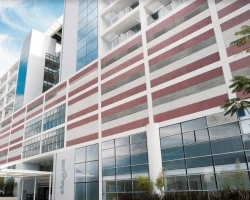
São Paulo, Brazil
Specializations: Cardiac surgery, Vascular surgery, Thoracic surgery, Orthopedic surgery, Oncology
Hospital e Maternidade São Luiz Unidade Anália Franco started its activities on March 3, 2008, in the East Zone of São Paulo, with the purpose
read more
1
from Isabel Rosero
November 27, 2023
Such a well-known clinic and the number does not work, how sad that today in many places you have to call to schedule an appointment and this one does not have that
5
from Floralva Sanchez
August 17, 2023
They always treat me well and are very kind to me.
It is possible that some people are predisposed and therefore feel a bad vibe, but I personally think the service in general is very good.
I recommend it.
1
from Manuel Morera Moreno
August 04, 2023
It's the worst
I've been calling for almost 2 months to make an appointment and a girl answers reluctantly and hangs up and one comes back and dials and no longer answers I need you to please help me
Prices for popular procedures:
-
Redo heart surgery
≈ $17,251
-
Off-pump coronary artery bypass surgery
≈ $13,442
-
Cardiac catheterization
≈ $1,875
-
Intraaortic balloon pump (IABP) procedure
≈ $1,572
-
Temporary pacemaker implantation
≈ $553
-
Percutaneous coronary intervention (PCI) with angioplasty
≈ $7,578
-
Percutaneous coronary intervention (PCI) with stent insertion
≈ $7,408
-
Dual chamber pacemaker insertion
≈ $6,871
-
Coronary artery bypass graft (CABG)
≈ $12,879
3.3
5 reviews
1
from Isabel Rosero
November 27, 2023
Such a well-known clinic and the number does not work, how sad that today in many places you have to call to schedule an appointment and this one does not have that
5
from Floralva Sanchez
August 17, 2023
They always treat me well and are very kind to me.
It is possible that some people are predisposed and therefore feel a bad vibe, but I personally think the service in general is very good.
I recommend it.
1
from Manuel Morera Moreno
August 04, 2023
It's the worst
I've been calling for almost 2 months to make an appointment and a girl answers reluctantly and hangs up and one comes back and dials and no longer answers I need you to please help me
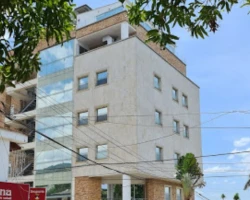
Villavicencio, Colombia
Specializations: Cardiac surgery, Vascular surgery, Neurosurgery
The CARDIOVASCULAR CLINIC of Angiography of Colombia is the result of more than 25 years of experience in other cities of our country and 15
read more
1
from Rocielle Barandino
November 24, 2023
The hospital staff needs to improve their compassion and empathy towards patients and their families. The customer service and facilities are below par. A dignified and respectful treatment should be provided to every individual, regardless of their social status. The families of ICU patients should be given a proper place to rest while waiting for updates. The hospital should convert dead spaces into lounges or waiting areas for families. Despite the high fees, the services, facilities, and staff attitudes do not meet the expectations.
3
from Vanie T
September 22, 2023
I had a terrible experience with the gay cashier and fat male bodyguard who were assigned at that time. The guard shouted at me because I asked him for the second time the cashier's office since his instruction at first was unclear. When I went upstairs, that gay cashier was soo rude! He got annoyed because I did not tell him right away that I would be using GLs. He insulted me by saying "Di lahat ng patients dito GL ang binabayad". I apologized patiently and told him that IT WAS MY FIRST TIME THERE. Yet, he was still frowning. HOW COME THIS HOSPITAL HIRED THOSE AGRESSIVE STAFF? I just controlled my anger and emotions since my father had to undergo a surgery at that time. I didn't want to stress him and my mother. On the other hand, the doctors were kind and approachable. I hope this concern will be raised, anyway.
3
from Edward Javier
September 07, 2023
Pretty much go there monthly to buy my maintenance medicines from their pharmacy. Waiting times can be long with their new July 2023 procedures where the 4th floor pharmacy only takes cash and card sales. The 1st floor only takes GL transaxtions and only entertains cash transactions at 4pm daily. Senior discounts are applied for 30day supplies only. 😑
Prices for popular procedures:
-
Redo heart surgery
≈ $14,587
-
Off-pump coronary artery bypass surgery
$8,042 - $13,682
-
Cardiac catheterization
≈ $2,087
-
Intraaortic balloon pump (IABP) procedure
≈ $2,353
-
Temporary pacemaker implantation
≈ $836
-
Percutaneous coronary intervention (PCI) with angioplasty
$3,034 - $4,898
-
Percutaneous coronary intervention (PCI) with stent insertion
≈ $4,805
-
Dual chamber pacemaker insertion
$3,088 - $4,172
-
Coronary artery bypass graft (CABG)
$10,885 - $15,171
4.0
5 reviews
1
from Rocielle Barandino
November 24, 2023
The hospital staff needs to improve their compassion and empathy towards patients and their families. The customer service and facilities are below par. A dignified and respectful treatment should be provided to every individual, regardless of their social status. The families of ICU patients should be given a proper place to rest while waiting for updates. The hospital should convert dead spaces into lounges or waiting areas for families. Despite the high fees, the services, facilities, and staff attitudes do not meet the expectations.
3
from Vanie T
September 22, 2023
I had a terrible experience with the gay cashier and fat male bodyguard who were assigned at that time. The guard shouted at me because I asked him for the second time the cashier's office since his instruction at first was unclear. When I went upstairs, that gay cashier was soo rude! He got annoyed because I did not tell him right away that I would be using GLs. He insulted me by saying "Di lahat ng patients dito GL ang binabayad". I apologized patiently and told him that IT WAS MY FIRST TIME THERE. Yet, he was still frowning. HOW COME THIS HOSPITAL HIRED THOSE AGRESSIVE STAFF? I just controlled my anger and emotions since my father had to undergo a surgery at that time. I didn't want to stress him and my mother. On the other hand, the doctors were kind and approachable. I hope this concern will be raised, anyway.
3
from Edward Javier
September 07, 2023
Pretty much go there monthly to buy my maintenance medicines from their pharmacy. Waiting times can be long with their new July 2023 procedures where the 4th floor pharmacy only takes cash and card sales. The 1st floor only takes GL transaxtions and only entertains cash transactions at 4pm daily. Senior discounts are applied for 30day supplies only. 😑
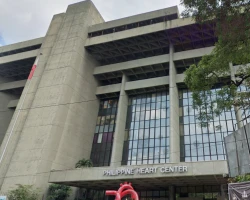
Quezon City, Philippines
Specializations: Cardiac surgery, Vascular surgery, Neurosurgery, Oncology
iThe Philippine Heart Center is essentially a hospital for patients suffering from heart ailments. However, it is equipped to render the best possible care for
read more
5
from Jakub Mikulica
November 09, 2023
Super
5
from otto březina
October 29, 2023
Ok
5
from howard zinn
June 09, 2023
The best hospital in czech, Its kind of specific. I never heard about ikem before, but Its so cool.
I love the islets projects, keep in mind to support it in the future.
Prices for popular procedures:
-
Redo heart surgery
≈ $14,804
-
Off-pump coronary artery bypass surgery
≈ $17,705
-
Cardiac catheterization
≈ $1,933
-
Intraaortic balloon pump (IABP) procedure
≈ $722
-
Temporary pacemaker implantation
≈ $748
-
Percutaneous coronary intervention (PCI) with angioplasty
≈ $1,307
-
Percutaneous coronary intervention (PCI) with stent insertion
≈ $7,000
-
Dual chamber pacemaker insertion
≈ $7,417
-
Coronary artery bypass graft (CABG)
≈ $5,973
4.7
5 reviews
5
from Jakub Mikulica
November 09, 2023
Super
5
from otto březina
October 29, 2023
Ok
5
from howard zinn
June 09, 2023
The best hospital in czech, Its kind of specific. I never heard about ikem before, but Its so cool.
I love the islets projects, keep in mind to support it in the future.

Prague, Czech Republic
Specializations: Cardiac surgery, Vascular surgery, Neurosurgery, Oncology
The Institute for Clinical and Experimental Medicine is the largest specialised clinical and science & research institute in the Czech Republic. IKEM is focused on
read more
5
from hallie mell
December 08, 2023
this is the only hospital that has ever made me feel comfortable and cared for. went in thinking I had heart problems and they connected me with a psychiatrist as it turned out to be stress related. they took my concerns seriously and made me feel cared for ❤️ even staff that weren’t caring for me were comforting as they passed by and this is coming from someone who has extremely bad experiences from hospitals. our healthcare system is flawed but these people did their best to help me today and i appreciate it.
5
from Thanh Nguyen
December 04, 2023
I was at Urgent Care at Concordia Hospital and be transferred to St-Boniface Hospital for a treatment of a group of specialists. I was very well taken care of by the doctors, the nurses and the staff. I’m very grateful and would not hesitate to recommend to any patient if you are admitted to St-Boniface Hospital. You will be in good hands !
1
from Daria Brown
November 20, 2023
Terrible service. Fetus Ultrasound was half an hour later than my initial appointment. The technician was not considerable or very respectful. Sounded like she would rather order me than asked to do certain movements or change positions, she was also hurting me during the procedure pushing on the stomach too intensely.
Prices for popular procedures:
-
Redo heart surgery
≈ $24,103
-
Off-pump coronary artery bypass surgery
≈ $55,329
-
Cardiac catheterization
≈ $7,097
-
Intraaortic balloon pump (IABP) procedure
≈ $8,883
-
Temporary pacemaker implantation
≈ $2,012
-
Dual chamber pacemaker insertion
≈ $16,149
-
Coronary artery bypass graft (CABG)
≈ $41,518
-
Heart valve replacement
≈ $45,412
-
Heart valve repair
≈ $53,255
3.1
5 reviews
5
from hallie mell
December 08, 2023
this is the only hospital that has ever made me feel comfortable and cared for. went in thinking I had heart problems and they connected me with a psychiatrist as it turned out to be stress related. they took my concerns seriously and made me feel cared for ❤️ even staff that weren’t caring for me were comforting as they passed by and this is coming from someone who has extremely bad experiences from hospitals. our healthcare system is flawed but these people did their best to help me today and i appreciate it.
5
from Thanh Nguyen
December 04, 2023
I was at Urgent Care at Concordia Hospital and be transferred to St-Boniface Hospital for a treatment of a group of specialists. I was very well taken care of by the doctors, the nurses and the staff. I’m very grateful and would not hesitate to recommend to any patient if you are admitted to St-Boniface Hospital. You will be in good hands !
1
from Daria Brown
November 20, 2023
Terrible service. Fetus Ultrasound was half an hour later than my initial appointment. The technician was not considerable or very respectful. Sounded like she would rather order me than asked to do certain movements or change positions, she was also hurting me during the procedure pushing on the stomach too intensely.

Winnipeg, Canada
Specializations: Cardiac surgery, Vascular surgery, Thoracic surgery, Neurosurgery, Oncology
St. Boniface Hospital has been providing leadership in health care on behalf of Manitobans since it was first established by the Grey Nuns in 1871.The
read more
5
from ひが
November 26, 2023
About a year ago, I underwent heart valve replacement surgery.The doctor gave thorough explanations and the nurses, even though they were all young, treated me with great care. Even patients who complained due to stress were treated with sincerity. When I was in the ICU, the assistant doctor had to take me to the bathroom every hour in the middle of the night because of the diuretics I was in. When I apologized, she said with a smile, "Don't worry about it, it's fine!" I was able to spend my time with peace of mind. I am very glad that I had the surgery at this hospital. Even though the food is low in salt, there are about 3 side dishes, so I think it's satisfying.
5
from 田中K
November 16, 2023
Thank you everyone for your kind response!
It's clear to see that he puts his patients first.
My illness, which had not been detected even though it had become serious at a major local hospital, was immediately discovered here, and I was given very detailed care, arranging for surgery and the prognosis.
I believe that it is the best hospital in the world in terms of technology, service, and everything else.
4
from hiro QLV
September 02, 2023
Three years ago, I had a blood vessel transplant and catheter surgery for coronary artery stenosis and angina pectoris here, and since then I've been going to the hospital regularly.It's a clean hospital, I feel comfortable, and it's conveniently located near JR Kishibe Station, which is helpful.
Prices for popular procedures:
-
Redo heart surgery
≈ $36,559
-
Off-pump coronary artery bypass surgery
≈ $32,684
-
Cardiac catheterization
≈ $4,756
-
Intraaortic balloon pump (IABP) procedure
≈ $4,138
-
Temporary pacemaker implantation
≈ $1,492
-
Percutaneous coronary intervention (PCI) with angioplasty
≈ $8,313
-
Percutaneous coronary intervention (PCI) with stent insertion
≈ $16,507
-
Dual chamber pacemaker insertion
≈ $15,570
-
Coronary artery bypass graft (CABG)
≈ $42,433
4.0
5 reviews
5
from ひが
November 26, 2023
About a year ago, I underwent heart valve replacement surgery.The doctor gave thorough explanations and the nurses, even though they were all young, treated me with great care. Even patients who complained due to stress were treated with sincerity. When I was in the ICU, the assistant doctor had to take me to the bathroom every hour in the middle of the night because of the diuretics I was in. When I apologized, she said with a smile, "Don't worry about it, it's fine!" I was able to spend my time with peace of mind. I am very glad that I had the surgery at this hospital. Even though the food is low in salt, there are about 3 side dishes, so I think it's satisfying.
5
from 田中K
November 16, 2023
Thank you everyone for your kind response!
It's clear to see that he puts his patients first.
My illness, which had not been detected even though it had become serious at a major local hospital, was immediately discovered here, and I was given very detailed care, arranging for surgery and the prognosis.
I believe that it is the best hospital in the world in terms of technology, service, and everything else.
4
from hiro QLV
September 02, 2023
Three years ago, I had a blood vessel transplant and catheter surgery for coronary artery stenosis and angina pectoris here, and since then I've been going to the hospital regularly.It's a clean hospital, I feel comfortable, and it's conveniently located near JR Kishibe Station, which is helpful.
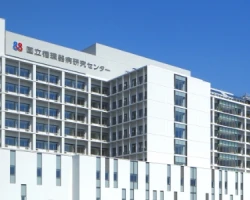
Suita, Japan
Specializations: Cardiac surgery, Vascular surgery, Neurosurgery, Oncology
National Cerebral and Cardiovascular Center (NCVC) Hospital was established in 1977 to provide world-class, advanced quality of care to patients with cerebral and cardiovascular diseases
read more
4
from Mustapha Hussein
July 05, 2023
I think it would be the best medical option in Menoufia
5
from Ahmed Samir
May 05, 2023
One of the best hospitals I've been to
4
from Ousmane Barry
December 19, 2022
Very nice, clean and western standing hospital in the middle of nowhere, where you get all health care services in the same place 👍🏽
Prices for popular procedures:
-
Percutaneous coronary intervention (PCI) with angioplasty
≈ $7,604
-
Percutaneous coronary intervention (PCI) with stent insertion
≈ $13,848
-
Fontan procedure
≈ $16,916
-
Patent ductus arteriosus (PDA) ligation in children
≈ $12,253
-
Atrioventricular canal defect surgery
≈ $19,356
-
Pulmonary artery banding (PAB)
≈ $7,686
-
Rastelli procedure
≈ $17,606
-
Nikaidoh procedure
≈ $23,564
-
Blalock-Taussig shunt
≈ $13,274
4.4
5 reviews
4
from Mustapha Hussein
July 05, 2023
I think it would be the best medical option in Menoufia
5
from Ahmed Samir
May 05, 2023
One of the best hospitals I've been to
4
from Ousmane Barry
December 19, 2022
Very nice, clean and western standing hospital in the middle of nowhere, where you get all health care services in the same place 👍🏽
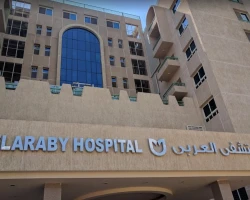
Ashmūn, Egypt
Specializations: Cardiac surgery, Vascular surgery, Thoracic surgery, Neurosurgery, Oncology
Elaraby Hospital is he biggest hospital in Delta. It provides excellence health care services using the best technology. Elaraby Hospital meets the needs of its
read more
1
from Bryn Elise
October 26, 2023
Gross negligence. I brought my father here because he was having a hard time breathing. The "doctor" wouldn't even examine him, told him it sounded like Covid but said testing is a waste of time, and told us to "wait it out". How are you supposed to "wait out" not being able to breathe?
What do people in Vienna do when they're experiencing a medical emergency? Simply drop dead?
Embarrassing excuse for a doctor and hospital. Avoid at all costs.
5
from Melanie Komorek
September 14, 2022
I highly recommend this Hospital. I had an operation and needed to stay there for 2 nights. It was my first time in the hospital ever and I dont speak German so I was double worried.
Turned out that all doctors, nurses and other staff are super nice and helpful. Almost all could speak English and even people who didnt still really try.
I felt very comfortable during my whole stay and you prove the statement Gesundheit kommt von Herzen!
1
from Samfirescu Ovidiu
July 21, 2022
Mixed bag ... I was here 3 times, the first one for a consultation, the doctor was very nice and clearly explained everything and he said that I need to get a colonoscopy and an endoscopy to confirm my diagnostics and based on that I will get tailored medication. The two procedures were done without any problems (here I really recommend this hospital) by the same doctor. Again he did explained everything clearly. No for the bad part: Today after waiting 2 months to get another appointment to interpret my results and get the tailored treatment and diet suggestions and so on, I've got another doctor, which rushed everything, he did not give me any treatment or any diet suggestions as I expected... he was talking to the phone during the consultation, and he ASKED ME what medication do I take and how often and he quickly wrote me a recipe for that medication and that was it, 2 minutes and done ... no tailored treatment, no diet suggestions, no other explanations nothing! because of this the mixed bag... if you are lucky to get the good doctors, well your are lucky ... if not ... Anyway not recommended ...
Prices for popular procedures:
-
Temporary pacemaker implantation
≈ $1,503
-
Percutaneous coronary intervention (PCI) with angioplasty
≈ $11,718
-
Percutaneous coronary intervention (PCI) with stent insertion
≈ $17,430
-
Dual chamber pacemaker insertion
≈ $13,775
-
Permanent pacemaker implantation
≈ $17,052
-
Coronary catheterization
≈ $3,331
-
Single chamber pacemaker insertion
≈ $13,821
-
Cardiac resynchronization therapy with pacemaker (CRT-P)
≈ $31,082
-
Cardiac resynchronization therapy with defibrillator (CRT-D)
≈ $40,344
4.0
5 reviews
1
from Bryn Elise
October 26, 2023
Gross negligence. I brought my father here because he was having a hard time breathing. The "doctor" wouldn't even examine him, told him it sounded like Covid but said testing is a waste of time, and told us to "wait it out". How are you supposed to "wait out" not being able to breathe?
What do people in Vienna do when they're experiencing a medical emergency? Simply drop dead?
Embarrassing excuse for a doctor and hospital. Avoid at all costs.
5
from Melanie Komorek
September 14, 2022
I highly recommend this Hospital. I had an operation and needed to stay there for 2 nights. It was my first time in the hospital ever and I dont speak German so I was double worried.
Turned out that all doctors, nurses and other staff are super nice and helpful. Almost all could speak English and even people who didnt still really try.
I felt very comfortable during my whole stay and you prove the statement Gesundheit kommt von Herzen!
1
from Samfirescu Ovidiu
July 21, 2022
Mixed bag ... I was here 3 times, the first one for a consultation, the doctor was very nice and clearly explained everything and he said that I need to get a colonoscopy and an endoscopy to confirm my diagnostics and based on that I will get tailored medication. The two procedures were done without any problems (here I really recommend this hospital) by the same doctor. Again he did explained everything clearly. No for the bad part: Today after waiting 2 months to get another appointment to interpret my results and get the tailored treatment and diet suggestions and so on, I've got another doctor, which rushed everything, he did not give me any treatment or any diet suggestions as I expected... he was talking to the phone during the consultation, and he ASKED ME what medication do I take and how often and he quickly wrote me a recipe for that medication and that was it, 2 minutes and done ... no tailored treatment, no diet suggestions, no other explanations nothing! because of this the mixed bag... if you are lucky to get the good doctors, well your are lucky ... if not ... Anyway not recommended ...
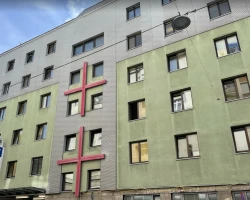
Vienna, Austria
Specializations: Cardiac surgery, Vascular surgery, Thoracic surgery, Neurosurgery, Oncology
With 221 beds and more than 55,000 inpatients and outpatients last year, the non-profit Sisters of Mercy Hospital is an integral part of Vienna's health
read more
3
from Christian Villegas
November 13, 2023
I did not get to take the consultation that was already scheduled, they asked me to reschedule and I was no longer able to attend, the prices are affordable, at least for what I was asking for in terms of gynecology.
The attention was via WhatsApp, I didn't like it at all. From the beginning I had already seen such terrible opinions that there are here about that clinic, but I base myself more on my own experience to leave a criticism, I cannot misjudge the medical care because I did not attend the consultation in the end, but the administrative care and service are bad, they take a long time to respond, nothing proper, they spell your name wrong and are inattentive. The truth is that on the one hand I preferred not to go to that place and so it was, I was afraid of the bad attention and I feel that that is what most represents a place and the work, they go hand in hand. I hope they improve it, apparently there are many complaints.
5
from Bicho Viajero
August 15, 2023
An excellent hospital, I would say one of the best in the entire State of Puebla. The staff is very professional, attentive, friendly, they treat patients in a dignified and humane way. The facilities are First Level 👌👌👌 Technology, Science and Professionalism working at the service of Health.
1
from J. Enrique M. Garcia
May 03, 2023
On March 23, I took my wife to her scheduled cesarean section, we arrived at the hospital and we waited for them to complete all the paperwork for more than 3 hours. After the surgery, my wife spent more than 6 hours recovering from anesthesia, the A nurse was terrible, my wife was in pain and she was asked to apply medication, which since it was shift change time, she did not give notice and the medication was given 1 hour after requesting it, payment was made to pediatrician Arturo Gonzalez and he I request an invoice for the fees, which to this day you have not sent me the receipt or invoice... I am tired of talking to you, sending you messages and nothing, and for that reason I cannot charge my insurance company for that expense, which It's a shame that a hospital ignores the request claiming that it is no longer their problem and it is directly with Dr.
In my case I went through the GNP insurance and the amount they assigned me was insufficient and they even charged me for the air I breathed inside the hospital. NOTHING RECOMMENDED.
Prices for popular procedures:
-
Cardiac catheterization
≈ $2,390
-
Intraaortic balloon pump (IABP) procedure
≈ $2,679
-
Percutaneous ASD closure
≈ $9,873
-
Percutaneous closure of ventricular septal defect (VSD)
≈ $10,160
-
Pulmonary artery thromboendarterectomy
≈ $9,642
-
Left atrial appendage occlusion
≈ $9,801
-
Transcatheter closure of patent ductus arteriosus (PDA) in adults
≈ $8,521
-
Coil embolization of intracardiac shunts and fistulas
≈ $4,489
-
Balloon angioplasty and stenting of aorta coarctation
≈ $9,721
3.9
5 reviews
3
from Christian Villegas
November 13, 2023
I did not get to take the consultation that was already scheduled, they asked me to reschedule and I was no longer able to attend, the prices are affordable, at least for what I was asking for in terms of gynecology.
The attention was via WhatsApp, I didn't like it at all. From the beginning I had already seen such terrible opinions that there are here about that clinic, but I base myself more on my own experience to leave a criticism, I cannot misjudge the medical care because I did not attend the consultation in the end, but the administrative care and service are bad, they take a long time to respond, nothing proper, they spell your name wrong and are inattentive. The truth is that on the one hand I preferred not to go to that place and so it was, I was afraid of the bad attention and I feel that that is what most represents a place and the work, they go hand in hand. I hope they improve it, apparently there are many complaints.
5
from Bicho Viajero
August 15, 2023
An excellent hospital, I would say one of the best in the entire State of Puebla. The staff is very professional, attentive, friendly, they treat patients in a dignified and humane way. The facilities are First Level 👌👌👌 Technology, Science and Professionalism working at the service of Health.
1
from J. Enrique M. Garcia
May 03, 2023
On March 23, I took my wife to her scheduled cesarean section, we arrived at the hospital and we waited for them to complete all the paperwork for more than 3 hours. After the surgery, my wife spent more than 6 hours recovering from anesthesia, the A nurse was terrible, my wife was in pain and she was asked to apply medication, which since it was shift change time, she did not give notice and the medication was given 1 hour after requesting it, payment was made to pediatrician Arturo Gonzalez and he I request an invoice for the fees, which to this day you have not sent me the receipt or invoice... I am tired of talking to you, sending you messages and nothing, and for that reason I cannot charge my insurance company for that expense, which It's a shame that a hospital ignores the request claiming that it is no longer their problem and it is directly with Dr.
In my case I went through the GNP insurance and the amount they assigned me was insufficient and they even charged me for the air I breathed inside the hospital. NOTHING RECOMMENDED.
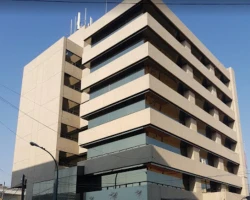
Puebla, Mexico
Specializations: Cardiac surgery, Vascular surgery, Neurosurgery, Oncology
Languages: English
It is a highly specialized hospital with cutting-edge technology for complex procedures and renovated facilities for patients' comfort. The clinic's safety protocols have the highest
read more
1
from Pilar Quijano
December 06, 2023
It is a clinic that does not have the slightest cleanliness requirements. Dishes, food, urine on the floor, ducks full of urine, wheelchairs remain in the hallways and inside the patients' reference room, thus generating bad odors and bad appearance. and a hostile environment. Nurses do not remain on site when patients require them. Patients have to be alert when the catheter bag is full and if they don't pick it up it overflows and makes a puddle of urine and it can go on all day and no one comes to clean it. They only allow one person to visit, but if another person arrives and the patient does not have any family members, they do not allow entry, because it is only one person per day. To enter the ICU they do not allow anything moral to be brought in with the toiletries but everything must be carried by hand. Visitors' personal belongings must be stored in a locker and do not provide any security. Once in the ICU he has to remove his rings, watch and other items. It really is a real ordeal. At the entrance door, the patient list is not updated and it can take more than 1/2 hour for the guard to communicate with the floor to verify if the patient is there or not. Don't let your patients be taken there. It seems that the service was alms. I can't explain how health allows the operation of this type of services and does not monitor the operation of the institution. When they release the patient, it takes more than 5 hours to leave because they only allow a single person to enter to do the procedures and to find the doctor who will give recommendations for the patient.
5
from CESAR MANCILLA
December 16, 2022
Clinical and hospital services.
5
from Daniel Y Ruby
May 19, 2021
I would like to thank all the staff and doctors who cared for and treated me. The care is very good and professional.
Prices for popular procedures:
-
Redo heart surgery
≈ $17,251
-
Off-pump coronary artery bypass surgery
≈ $13,442
-
Coronary artery bypass graft (CABG)
≈ $12,879
-
Septal myectomy
≈ $8,442
-
Repair of the ruptured sinuses of Valsalva
≈ $12,403
-
Atrial septal defect (ASD) repair
≈ $9,904
-
Ventricular septal defect (VSD) repair
≈ $11,659
-
Heart tumor surgery
≈ $10,262
-
Open-heart intracardiac foreign body removal
≈ $9,796
3.3
5 reviews
1
from Pilar Quijano
December 06, 2023
It is a clinic that does not have the slightest cleanliness requirements. Dishes, food, urine on the floor, ducks full of urine, wheelchairs remain in the hallways and inside the patients' reference room, thus generating bad odors and bad appearance. and a hostile environment. Nurses do not remain on site when patients require them. Patients have to be alert when the catheter bag is full and if they don't pick it up it overflows and makes a puddle of urine and it can go on all day and no one comes to clean it. They only allow one person to visit, but if another person arrives and the patient does not have any family members, they do not allow entry, because it is only one person per day. To enter the ICU they do not allow anything moral to be brought in with the toiletries but everything must be carried by hand. Visitors' personal belongings must be stored in a locker and do not provide any security. Once in the ICU he has to remove his rings, watch and other items. It really is a real ordeal. At the entrance door, the patient list is not updated and it can take more than 1/2 hour for the guard to communicate with the floor to verify if the patient is there or not. Don't let your patients be taken there. It seems that the service was alms. I can't explain how health allows the operation of this type of services and does not monitor the operation of the institution. When they release the patient, it takes more than 5 hours to leave because they only allow a single person to enter to do the procedures and to find the doctor who will give recommendations for the patient.
5
from CESAR MANCILLA
December 16, 2022
Clinical and hospital services.
5
from Daniel Y Ruby
May 19, 2021
I would like to thank all the staff and doctors who cared for and treated me. The care is very good and professional.
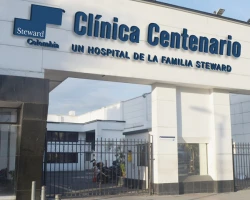
Bogota, Colombia
Specializations: Cardiac surgery, Neurosurgery, Orthopedic surgery
Centenario is a modern hospital structure located in an area of urban growth in the center of Bogota. It has more than 9,000 m2 constructed;
read more
1
from Javier Omar Hernández Ríos
August 29, 2023
Emergency care is fast. More if you bring MAJOR MEDICAL EXPENSES. But once you enter the agony begins. Like when you enter the house of terror. The eternal wait for attention, medically, studies, doctors. The facilities for what they charge are bad. The network of Inter and terrible
1
from Paulina Garcia
August 23, 2023
Horrible experience, in reception no one knows what they are doing or where to send you , totally regret the time wasted in this institution
4
from eliazar hernandez
February 19, 2023
Ok
Prices for popular procedures:
-
Cardiac catheterization
≈ $2,390
-
Intraaortic balloon pump (IABP) procedure
≈ $2,679
-
Percutaneous ASD closure
≈ $9,873
-
Percutaneous closure of ventricular septal defect (VSD)
≈ $10,160
-
Left atrial appendage occlusion
≈ $9,801
-
Transcatheter closure of patent ductus arteriosus (PDA) in adults
≈ $8,521
-
Coil embolization of intracardiac shunts and fistulas
≈ $4,489
-
Balloon angioplasty and stenting of aorta coarctation
≈ $9,721
-
Rashkind procedure
≈ $8,395
3.5
5 reviews
1
from Javier Omar Hernández Ríos
August 29, 2023
Emergency care is fast. More if you bring MAJOR MEDICAL EXPENSES. But once you enter the agony begins. Like when you enter the house of terror. The eternal wait for attention, medically, studies, doctors. The facilities for what they charge are bad. The network of Inter and terrible
1
from Paulina Garcia
August 23, 2023
Horrible experience, in reception no one knows what they are doing or where to send you , totally regret the time wasted in this institution
4
from eliazar hernandez
February 19, 2023
Ok
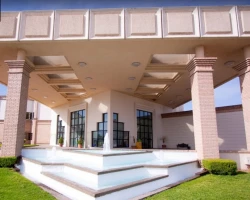
Saltillo, Mexico
Specializations: Cardiac surgery, Vascular surgery, Neurosurgery, Orthopedic surgery, Oncology
Languages: English
We are the most modern and complete Hospital in Saltillo Today we are the most modern and complete Hospital in Saltillo. We have more than
read more
2
from lucky lunie
November 28, 2023
My experiences here aren't great at all. My partner had his appendix out here this year, kept cancelling his operation at 5pm then not giving him any dinner, this went on for 4 days. I was there for a scan for my pregnancy last week. Person doing it was male, and quite rude, ignored any questions I had.
This morning we went again to find out our scheduled scan was already completed two weeks ago, that they had done two scans in one, so we went to have our bloods done. I'm not usually impatient ornride towards hospital staff at all, but the woman who pushed in front of us was seen first, and the phlebotomists, all 5 of them the. Left us sitting there and saw 9 other people ahead of us while we waited for over an hour, they just saw anyone else who walked in. It was so rude I eventually got up and walked out.
1
from edward hawkins
September 12, 2023
This is my second visit for surgery the first was a couple of years ago for a kidney stones I fasted for 3 days waiting each day for the non-existing surgery.
Today I am in exactly the same position, day 2 of fasting.
If you are needing emergency surgery, expect to wait, be frustrated and be hungry.
PS they will give you a couple of sandwiches when the message finally comes in that the surgery will be tomorrow. Walk out get hit by a car and then you may get looked at
1
from Shan
September 06, 2023
Alone mother with my child. We had the worse experience. Staff don't communicate, no catering for remote living transports. Indigenous just abuse the staff and ended up in our room also using their kid as a place to sleep the night. I hope to never be sent to this place again.
Prices for popular procedures:
-
Percutaneous coronary intervention (PCI) with angioplasty
≈ $13,180
-
Percutaneous coronary intervention (PCI) with stent insertion
≈ $11,638
-
Coronary catheterization
≈ $4,311
-
Fractional flow reserve (FFR)
≈ $2,656
-
Rotational atherectomy
≈ $4,717
-
Angioplasty of the pulmonary artery
≈ $9,005
-
Peripheral artery angioplasty and stent placement
≈ $12,863
-
Renal artery angioplasty and stenting
≈ $12,768
-
Carotid endarterectomy (CEA)
≈ $12,466
3.0
5 reviews
2
from lucky lunie
November 28, 2023
My experiences here aren't great at all. My partner had his appendix out here this year, kept cancelling his operation at 5pm then not giving him any dinner, this went on for 4 days. I was there for a scan for my pregnancy last week. Person doing it was male, and quite rude, ignored any questions I had.
This morning we went again to find out our scheduled scan was already completed two weeks ago, that they had done two scans in one, so we went to have our bloods done. I'm not usually impatient ornride towards hospital staff at all, but the woman who pushed in front of us was seen first, and the phlebotomists, all 5 of them the. Left us sitting there and saw 9 other people ahead of us while we waited for over an hour, they just saw anyone else who walked in. It was so rude I eventually got up and walked out.
1
from edward hawkins
September 12, 2023
This is my second visit for surgery the first was a couple of years ago for a kidney stones I fasted for 3 days waiting each day for the non-existing surgery.
Today I am in exactly the same position, day 2 of fasting.
If you are needing emergency surgery, expect to wait, be frustrated and be hungry.
PS they will give you a couple of sandwiches when the message finally comes in that the surgery will be tomorrow. Walk out get hit by a car and then you may get looked at
1
from Shan
September 06, 2023
Alone mother with my child. We had the worse experience. Staff don't communicate, no catering for remote living transports. Indigenous just abuse the staff and ended up in our room also using their kid as a place to sleep the night. I hope to never be sent to this place again.
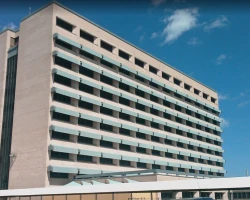
Tiwi, Australia
Specializations: Cardiac surgery, Vascular surgery, Thoracic surgery, Neurosurgery, Oncology
The Royal Darwin Hospital is a 360-bed public hospital that has a large range of services in all specialty areas.
read more
5
from Kostas Seitanidis
November 29, 2023
Our daughter came about 6 weeks early tonight. The entire team at the children's clinic really took great care of us, my wife was looked after very well and everything else was also explained to us very well. Many thanks to the sisters who supported us so well during the birth and guided us through everything in a relaxed manner with so much patience and empathy
1
from goezde sezer
October 17, 2023
Worst hospital in all of Bremen! On the evening of September 20, 2023, I was at the doctor's on-call service due to severe abdominal pain. When I got there, there was no one in the waiting room and I was taken straight away, which is actually very good. But when I described my symptoms, I was immediately insulted as to why I was coming for a stomach ache and why it was costing me unnecessary money
would cause and that stomach pain is normal etc. and the doctor was extremely rude! I wasn't checked either and was sent straight home. I don't remember the older doctor's name. But he definitely wasn't interested in his job.
I was so shocked that I left in tears. Of course my pain didn't go away and 1 day later I went back to the emergency room at St. Joseph Stift Hospital and found out that I had appendicitis + inflammation in the ovary. Very very disappointing this hospital, especially this doctor.
5
from Anita Osei
September 28, 2023
Everyone was lovely and caring hospitality team is great 👍
Prices for popular procedures:
-
Percutaneous coronary intervention (PCI) with angioplasty
≈ $18,229
-
Percutaneous coronary intervention (PCI) with stent insertion
≈ $26,146
-
Coronary catheterization
≈ $5,826
-
Fractional flow reserve (FFR)
≈ $3,735
-
Rotational atherectomy
≈ $7,680
-
Pulmonary artery thromboendarterectomy
≈ $40,747
-
Angioplasty of the pulmonary artery
≈ $16,014
-
Rotator cuff repair
≈ $11,447
-
Shoulder arthroscopy
≈ $12,674
2.7
5 reviews
5
from Kostas Seitanidis
November 29, 2023
Our daughter came about 6 weeks early tonight. The entire team at the children's clinic really took great care of us, my wife was looked after very well and everything else was also explained to us very well. Many thanks to the sisters who supported us so well during the birth and guided us through everything in a relaxed manner with so much patience and empathy
1
from goezde sezer
October 17, 2023
Worst hospital in all of Bremen! On the evening of September 20, 2023, I was at the doctor's on-call service due to severe abdominal pain. When I got there, there was no one in the waiting room and I was taken straight away, which is actually very good. But when I described my symptoms, I was immediately insulted as to why I was coming for a stomach ache and why it was costing me unnecessary money
would cause and that stomach pain is normal etc. and the doctor was extremely rude! I wasn't checked either and was sent straight home. I don't remember the older doctor's name. But he definitely wasn't interested in his job.
I was so shocked that I left in tears. Of course my pain didn't go away and 1 day later I went back to the emergency room at St. Joseph Stift Hospital and found out that I had appendicitis + inflammation in the ovary. Very very disappointing this hospital, especially this doctor.
5
from Anita Osei
September 28, 2023
Everyone was lovely and caring hospitality team is great 👍
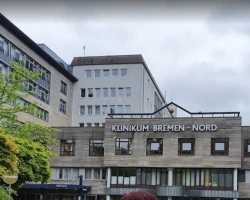
Bremen, Germany
Specializations: Cardiac surgery, Vascular surgery, Thoracic surgery, Neurosurgery, Orthopedic surgery, Oncology
From obstetrics to geriatrics, the Bremen-Nord Clinic, with around 970 employees, offers all medical services that are important for the people in Bremen-Nord and the
read more
5
from Jesica Caffara
November 05, 2023
I have been hospitalized for 3 days for heart failure, the therapy is private and a luxury. The gastronomy is a 10, the attention of the nurses is excellent. Cleaning 4 times a day. The place is wonderful.
5
from Diego Osorio
October 26, 2023
I was hospitalized for 2 days in this clinic for an operation and the truth is that everything was a ten!
The clinic is a luxury, at least on the floor where I was (9th) with nurses on duty all day, nutritionist, surgeon, a whole team of people on top of everything. An excellent human group at work and not to mention the food where you can choose your own menu.
Thank you all for making my stay a luxury, I never thought that a visit to a clinic could stop being an unpleasant experience (it will never be a good thing, nothing like the house but it was bearable)
I recommend!
1
from Adelina Vigert
June 06, 2023
Images: 1 hour for reception (enter the system) and 1 more hour for them to call me to carry out the study!!! I have an appointment made 3 weeks ago. They attend to spontaneous demand and with shifts all in one place, they call in order of arrival and only 2 people receiving (there are 4 positions) and they are VERY BAD EDUCATED. A SHAME. The Dr. very attentive
Prices for popular procedures:
-
Redo heart surgery
≈ $19,391
-
Off-pump coronary artery bypass surgery
≈ $17,361
-
Temporary pacemaker implantation
≈ $783
-
Percutaneous coronary intervention (PCI) with angioplasty
≈ $6,071
-
Percutaneous coronary intervention (PCI) with stent insertion
≈ $7,241
-
Dual chamber pacemaker insertion
≈ $7,058
-
Coronary artery bypass graft (CABG)
≈ $18,103
-
Heart valve replacement
≈ $25,837
-
Heart valve repair
≈ $22,194
3.9
5 reviews
5
from Jesica Caffara
November 05, 2023
I have been hospitalized for 3 days for heart failure, the therapy is private and a luxury. The gastronomy is a 10, the attention of the nurses is excellent. Cleaning 4 times a day. The place is wonderful.
5
from Diego Osorio
October 26, 2023
I was hospitalized for 2 days in this clinic for an operation and the truth is that everything was a ten!
The clinic is a luxury, at least on the floor where I was (9th) with nurses on duty all day, nutritionist, surgeon, a whole team of people on top of everything. An excellent human group at work and not to mention the food where you can choose your own menu.
Thank you all for making my stay a luxury, I never thought that a visit to a clinic could stop being an unpleasant experience (it will never be a good thing, nothing like the house but it was bearable)
I recommend!
1
from Adelina Vigert
June 06, 2023
Images: 1 hour for reception (enter the system) and 1 more hour for them to call me to carry out the study!!! I have an appointment made 3 weeks ago. They attend to spontaneous demand and with shifts all in one place, they call in order of arrival and only 2 people receiving (there are 4 positions) and they are VERY BAD EDUCATED. A SHAME. The Dr. very attentive
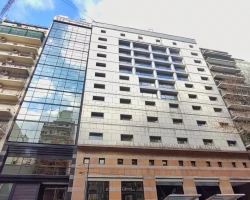
Buenos Aires, Argentina
Specializations: Cardiac surgery, Vascular surgery, Neurosurgery, Orthopedic surgery
Inaugurated on March 1, 1991, the Suizo Argentina Clinic and Maternity began its history with a revolutionary vision in the concept of care and comfort
read more
1
from Guisselle Carlson
August 07, 2023
A family member had surgery a few days!
At de financial desk, I paid the amount that they charged!
I asked, with this payment, all medical services are covered!
They said Yes!!
After 24 hrs, my family member was ready to check out!
The nurse's desk told me that I need to go to the financial desk to pay, before the patient can go!
I was upset, due to the fact I paid enough for 24 hrs!
They told me that all services such as: gloves, medications,
Hygiene, food, etc, have to be paid!
This hospital is old!
I paid more than I should have!
My recommendation is, not to use this hospital Climic Catolic
5
from Isabel Pedersen
January 28, 2019
Very good service and support. I called them one day before for an appointment. Nex day At 11 am I met the doctor (on time!). Very good conversation in english, very fast service. You have to pay in advance. People were very friendly and helpful! Appointment costs about 80 dollars, other things on demand. you can pay by credit card easily. i highly recommend the clinic.
5
from Marco Benavides
June 03, 2017
Our children's pediatrician, Dr. Nora Padron sees them here. She has been their doctor since they were born. There is no other pediatrician anywhere that can measure up to this great, kind, caring and thoroughly knowledgeable professional.
Prices for popular procedures:
-
Cardiac catheterization
≈ $3,186
-
Intraaortic balloon pump (IABP) procedure
≈ $3,509
-
Temporary pacemaker implantation
≈ $755
-
Percutaneous coronary intervention (PCI) with angioplasty
≈ $6,214
-
Percutaneous coronary intervention (PCI) with stent insertion
≈ $8,777
-
Dual chamber pacemaker insertion
≈ $9,540
-
Fontan procedure
≈ $18,807
-
Permanent pacemaker implantation
≈ $8,520
-
Percutaneous ASD closure
≈ $9,689
3.8
5 reviews
1
from Guisselle Carlson
August 07, 2023
A family member had surgery a few days!
At de financial desk, I paid the amount that they charged!
I asked, with this payment, all medical services are covered!
They said Yes!!
After 24 hrs, my family member was ready to check out!
The nurse's desk told me that I need to go to the financial desk to pay, before the patient can go!
I was upset, due to the fact I paid enough for 24 hrs!
They told me that all services such as: gloves, medications,
Hygiene, food, etc, have to be paid!
This hospital is old!
I paid more than I should have!
My recommendation is, not to use this hospital Climic Catolic
5
from Isabel Pedersen
January 28, 2019
Very good service and support. I called them one day before for an appointment. Nex day At 11 am I met the doctor (on time!). Very good conversation in english, very fast service. You have to pay in advance. People were very friendly and helpful! Appointment costs about 80 dollars, other things on demand. you can pay by credit card easily. i highly recommend the clinic.
5
from Marco Benavides
June 03, 2017
Our children's pediatrician, Dr. Nora Padron sees them here. She has been their doctor since they were born. There is no other pediatrician anywhere that can measure up to this great, kind, caring and thoroughly knowledgeable professional.
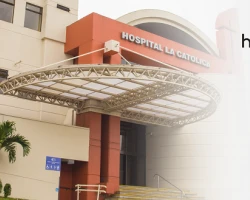
San José, Costa Rica
Specializations: Cardiac surgery, Vascular surgery, Neurosurgery, Orthopedic surgery
Languages: English
Hospital La Católica opened its doors on March 16th, 1963, as a new option for private medical attention. This initiative was undertaken by a group
read more
1
from Nadma Rodrigues
November 28, 2023
I don't know why there are no cameras in the hospital. At least in the nurses' room. Every time I went to the pediatric emergency room the same thing happened. Nurses talking about personal matters, laughing loudly, as if they were in a bar.
And when we make any requests, they are rude, rude and even mocking. I spent 14 hours there with my 3-year-old son. I didn't even see hygiene (the minimum expected in a hospital). Sheets used by patients the night before were left on the chair (until the time I left, they were still there). Children with infectious diseases (gastroenteritis, severe flu...) were discharged and the seats were not sanitized. They directed me to the resting chair, when I sat down I felt something dripping on me. It was the nebulizing mask that a child had worn during the night. I myself had to sanitize the armchair my son was in. Holding him with one hand and rubbing alcohol with the other. Chaos. I filed a complaint with the ombudsman and to this day I have not received a response. I will formalize a new complaint with the ANS with photos and videos.
4
from Geraldo Pereira Ribeiro
October 03, 2023
Top
5
from Jeff Erdman
October 03, 2023
I think this hospital is great, I had 2 surgery there. I am from United States. The Dr used was Dr luis Eduardo Barbosa. His staff was excellent. The front desk at check in very professional. Then I was brought to a room to change and then to the OR. woke up in recovery and was feed food and released in the morning. Parking was easy.
Hospital was clean, looked up to date. Excellent experience there.
Prices for popular procedures:
-
Redo heart surgery
≈ $5,335
-
Off-pump coronary artery bypass surgery
≈ $9,098
-
Cardiac catheterization
≈ $913
-
Intraaortic balloon pump (IABP) procedure
≈ $1,278
-
Temporary pacemaker implantation
≈ $485
-
Percutaneous coronary intervention (PCI) with angioplasty
≈ $3,830
-
Percutaneous coronary intervention (PCI) with stent insertion
≈ $3,461
-
Dual chamber pacemaker insertion
≈ $4,209
-
Coronary artery bypass graft (CABG)
≈ $7,909
2.6
5 reviews
1
from Nadma Rodrigues
November 28, 2023
I don't know why there are no cameras in the hospital. At least in the nurses' room. Every time I went to the pediatric emergency room the same thing happened. Nurses talking about personal matters, laughing loudly, as if they were in a bar.
And when we make any requests, they are rude, rude and even mocking. I spent 14 hours there with my 3-year-old son. I didn't even see hygiene (the minimum expected in a hospital). Sheets used by patients the night before were left on the chair (until the time I left, they were still there). Children with infectious diseases (gastroenteritis, severe flu...) were discharged and the seats were not sanitized. They directed me to the resting chair, when I sat down I felt something dripping on me. It was the nebulizing mask that a child had worn during the night. I myself had to sanitize the armchair my son was in. Holding him with one hand and rubbing alcohol with the other. Chaos. I filed a complaint with the ombudsman and to this day I have not received a response. I will formalize a new complaint with the ANS with photos and videos.
4
from Geraldo Pereira Ribeiro
October 03, 2023
Top
5
from Jeff Erdman
October 03, 2023
I think this hospital is great, I had 2 surgery there. I am from United States. The Dr used was Dr luis Eduardo Barbosa. His staff was excellent. The front desk at check in very professional. Then I was brought to a room to change and then to the OR. woke up in recovery and was feed food and released in the morning. Parking was easy.
Hospital was clean, looked up to date. Excellent experience there.
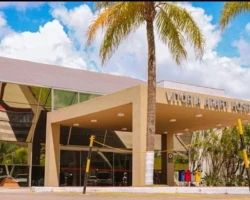
Serra, Brazil
Specializations: Cardiac surgery, Vascular surgery, Thoracic surgery, Neurosurgery, Orthopedic surgery, Oncology
Founded in 2001, Vitória Apart Hospital is a center of excellence in high complexity medicine in Espírito Santo, prepared to take care of people's health
read more
1
from Alex Martinez
September 25, 2023
A shame, as soon as you arrive at the guard, the person at the reception tells you very reluctantly that you are between 4 and 5 hours late. Do you understand the indifference of this guard service at the Pirovano public hospital???? It is a lack of respect for the dignity of life
5
from Rod & Liz Merlo
July 18, 2023
Went at 11:30 and was out by 14:00. The staff was extremely friendly and helpful. Used my Canadian passport and received all services free of charge. They took chest xrays and sent me off with the proper prescription, which I was able to buy from down the street.
Thank you to all staff that helped me out! Keep up the great work! 👍
3
from Krampus ༒
July 01, 2023
I came here because of an intense headache that I had a week ago, with my mother with high blood pressure (20 something) they gave her 2 pills and said in 2 hours we will call her to see if she stabilizes if not we will hospitalize her
And 5 hours ago they told me they'll call you right next door it's 11:20 p.m. I just went to complain and they say: there I'll check if they're free and they'll take care of you... Whatever, I'll die of a migraine if I'm lucky They serve me.
The bathrooms are disgusting, you sit there and it infects your soul. Dead cockroach under the benches
All very unprofessional
Prices for popular procedures:
-
Percutaneous coronary intervention (PCI) with angioplasty
≈ $6,071
-
Percutaneous coronary intervention (PCI) with stent insertion
≈ $7,241
-
Heart valve replacement
≈ $25,837
-
Heart valve repair
≈ $22,194
-
Aortic valve replacement (AVR)
≈ $25,070
-
Mitral valve replacement (MVR)
≈ $19,313
-
Transcatheter aortic valve replacement (TAVR)
≈ $34,438
-
Coronary catheterization
≈ $1,587
-
Fractional flow reserve (FFR)
≈ $817
3.3
5 reviews
1
from Alex Martinez
September 25, 2023
A shame, as soon as you arrive at the guard, the person at the reception tells you very reluctantly that you are between 4 and 5 hours late. Do you understand the indifference of this guard service at the Pirovano public hospital???? It is a lack of respect for the dignity of life
5
from Rod & Liz Merlo
July 18, 2023
Went at 11:30 and was out by 14:00. The staff was extremely friendly and helpful. Used my Canadian passport and received all services free of charge. They took chest xrays and sent me off with the proper prescription, which I was able to buy from down the street.
Thank you to all staff that helped me out! Keep up the great work! 👍
3
from Krampus ༒
July 01, 2023
I came here because of an intense headache that I had a week ago, with my mother with high blood pressure (20 something) they gave her 2 pills and said in 2 hours we will call her to see if she stabilizes if not we will hospitalize her
And 5 hours ago they told me they'll call you right next door it's 11:20 p.m. I just went to complain and they say: there I'll check if they're free and they'll take care of you... Whatever, I'll die of a migraine if I'm lucky They serve me.
The bathrooms are disgusting, you sit there and it infects your soul. Dead cockroach under the benches
All very unprofessional
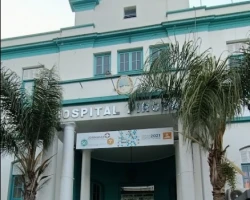
Buenos Aires, Argentina
Specializations: Cardiac surgery, Vascular surgery, Neurosurgery, Orthopedic surgery, Oncology
On July 24, 1896, the Pirovano Hospital (which was to be called Belgrano Hospital) opened its doors to ensure the assistance of an original population
read more
Clinics grouping by rating
Clinic with the highest rating of 5 — Clinical Hospital Lapino in Moscow, Russia and 5 more, clinic with the most reviews number of 35757 — Aster CMI hospital in Bengaluru, India.
With rating 4.0 and over — 278 clinics .
Countries with the highest number of clinics treating the diseases:
Myocardial infarction (MI):
worldwide
773 clinics
Brazil
47 clinics
Germany
44 clinics
India
40 clinics
Mexico
33 clinics
Colombia
32 clinics
Related procedures:
Procedures are likely to be used for Myocardial infarction (MI) treatment:
Cardiac catheterization,
Intraaortic balloon pump (IABP) procedure,
Intracardiac echocardiography (ICE),
Off-pump coronary artery bypass surgery,
and
Percutaneous coronary intervention (PCI) with angioplasty
.
Quick navigation
Procedures
Diseases
- Balloon angioplasty and stenting of aorta coarctation $524 - $51,493
- Cardiac catheterization $241 - $10,343
- Coarctectomy in children $1,012 - $76,680
- Coil embolization of intracardiac shunts and fistulas $713 - $31,741
- Extracorporeal membrane oxygenation (ECMO) $952 - $1,131,510
- Heart tumor surgery $654 - $73,060
- Intraaortic balloon pump (IABP) procedure $155 - $256,865
- Left atrial appendage occlusion $2,159 - $163,295
- MAZE procedure $3,120 - $166,340
- Minimally invasive valvular heart surgery with valve repair or replacement $2,162 - $8,441
- NobleStitch™ PFO closure procedure ≈ $8,208
- Open-heart intracardiac foreign body removal $713 - $102,052
- Patent ductus arteriosus (PDA) open heart surgery in adults $1,512 - $45,319
- Percutaneous ASD closure $238 - $163,295
- Percutaneous closure of ventricular septal defect (VSD) $238 - $163,295
- Rashkind procedure $420 - $39,229
- Surgery for tetralogy of Fallot (TOF) in adults $1,880 - $58,384
- Surgical ventricular restoration (SVR) $832 - $78,568
- Transcatheter closure of patent ductus arteriosus (PDA) in adults $606 - $45,374
- Ventricular septal defect (VSD) repair $879 - $86,390
- Aortic valve insufficiency
- Aortic valve stenosis
- Atrial fibrillation (AFib)
- Coarctation of the aorta (CoA)
- Foreign bodies in the heart
- Heart failure
- Heart tumor
- Heart valve disease
- Mitral valve insufficiency
- Mitral valve stenosis
- Multivalvular disease
- Myocardial infarction (MI)
- Pneumonia
- Pulmonary hypertension
- Sinus of valsalva aneurysm (SOVA)
- Tricuspid valve insufficiency
- Tricuspid valve stenosis
- Valvular insufficiency
- Ventricular aneurysm
- Ventricular septal rupture (VSR)


